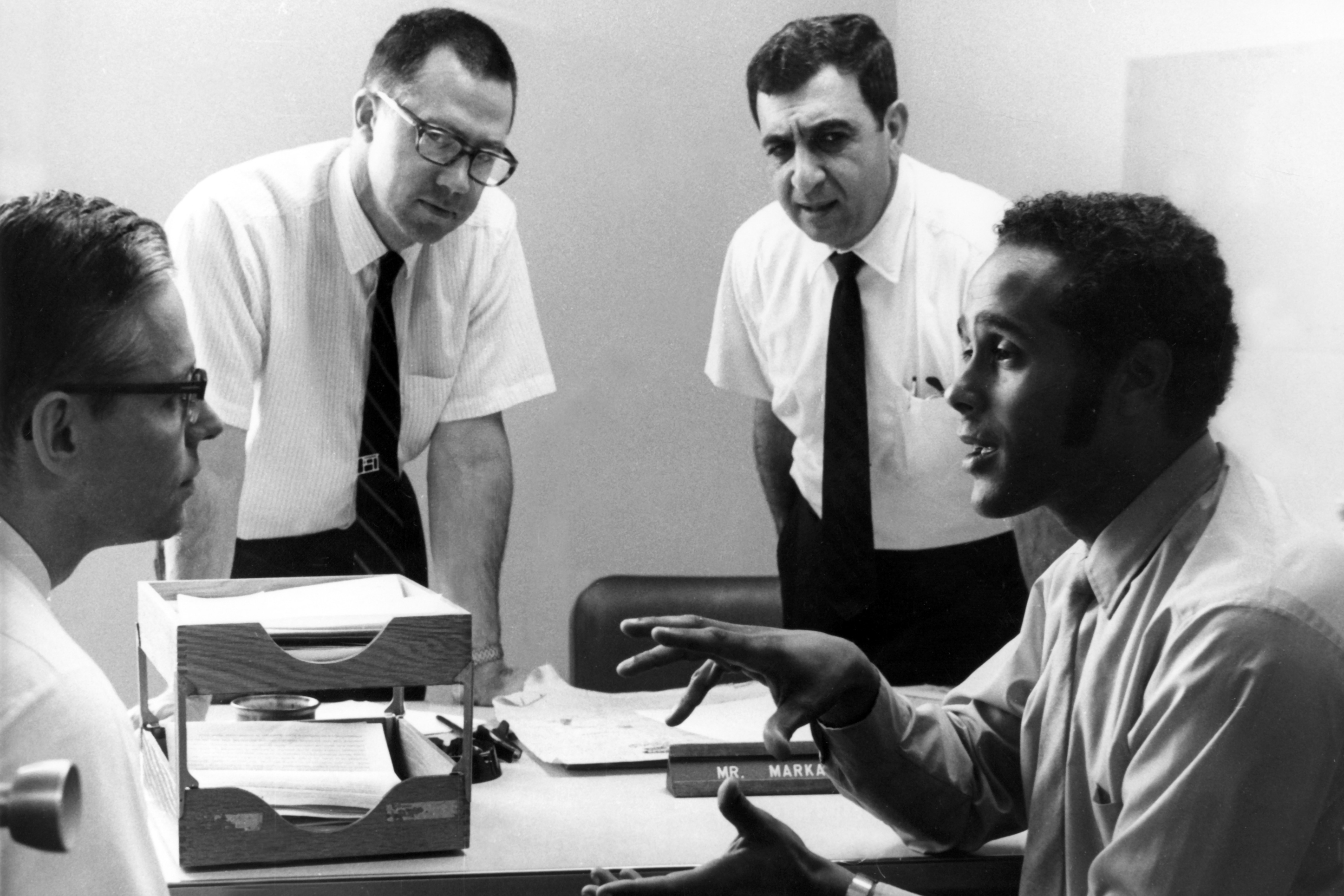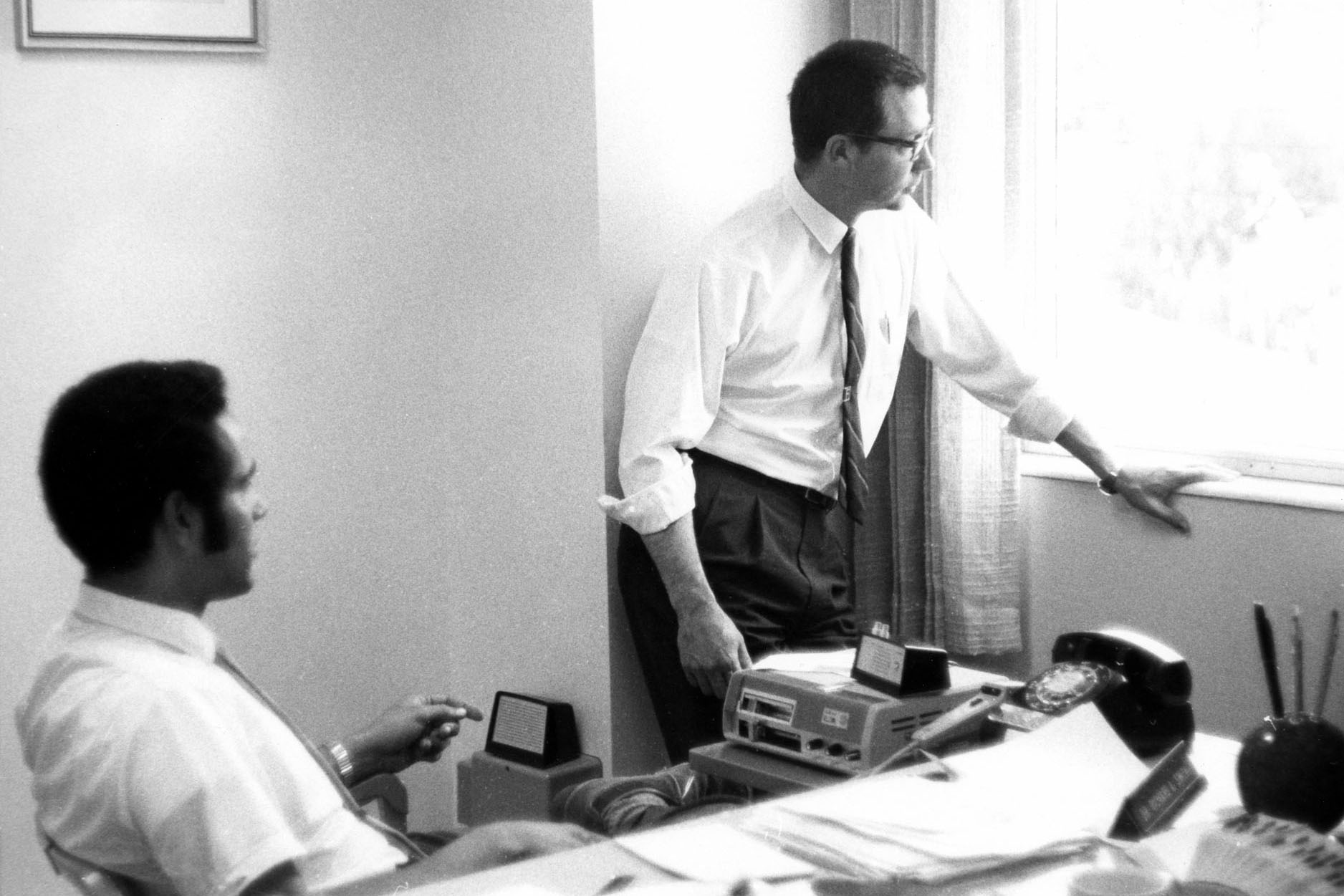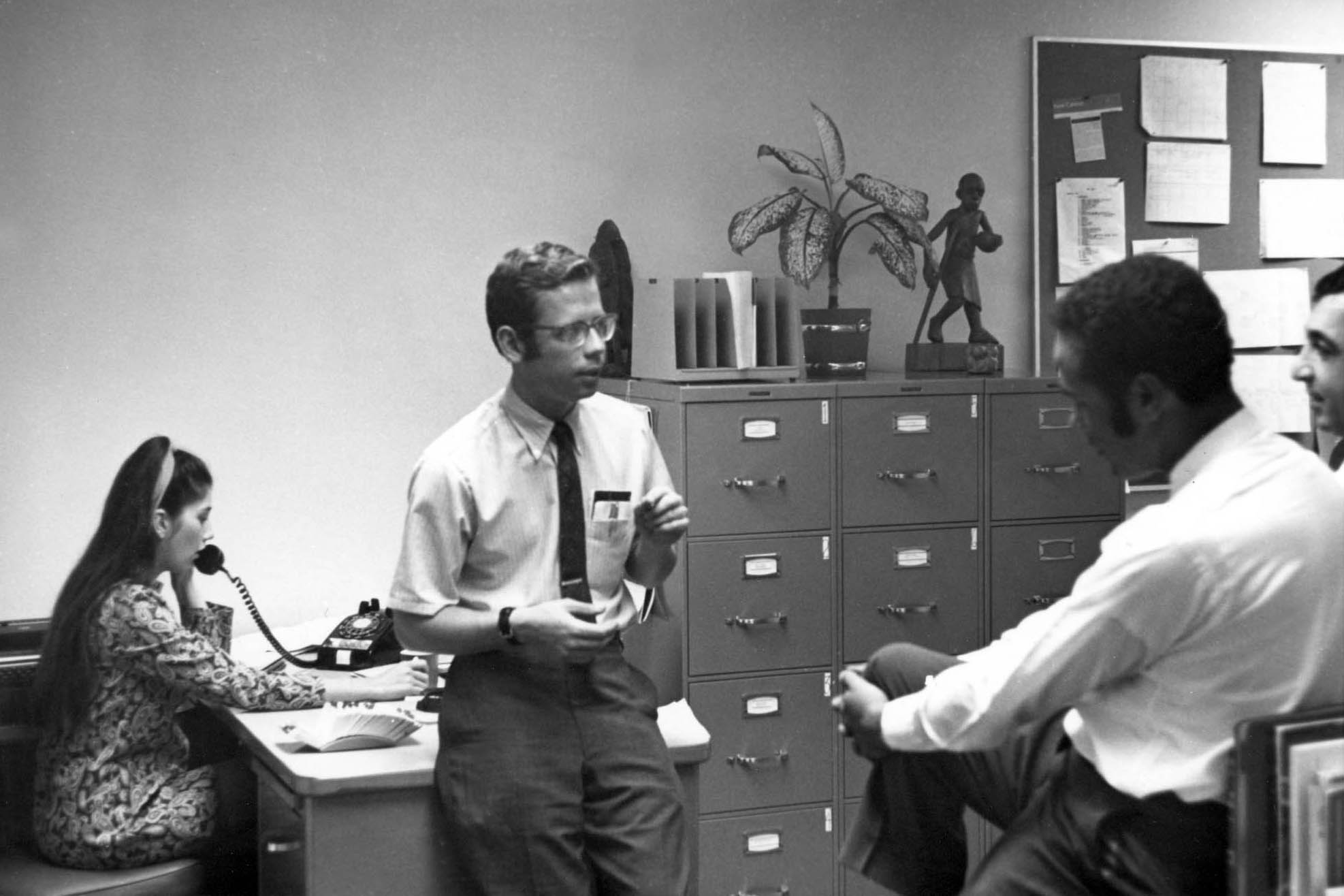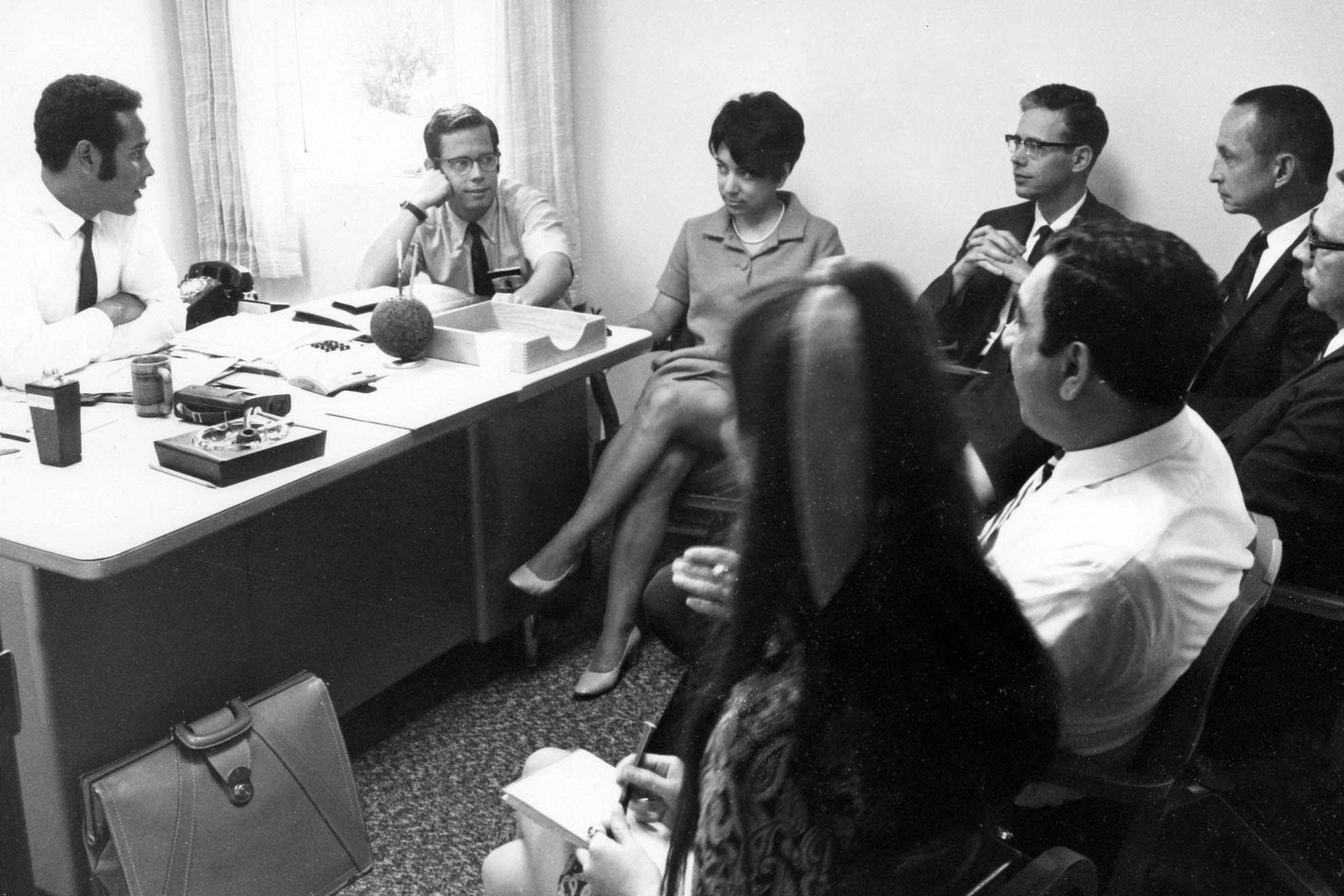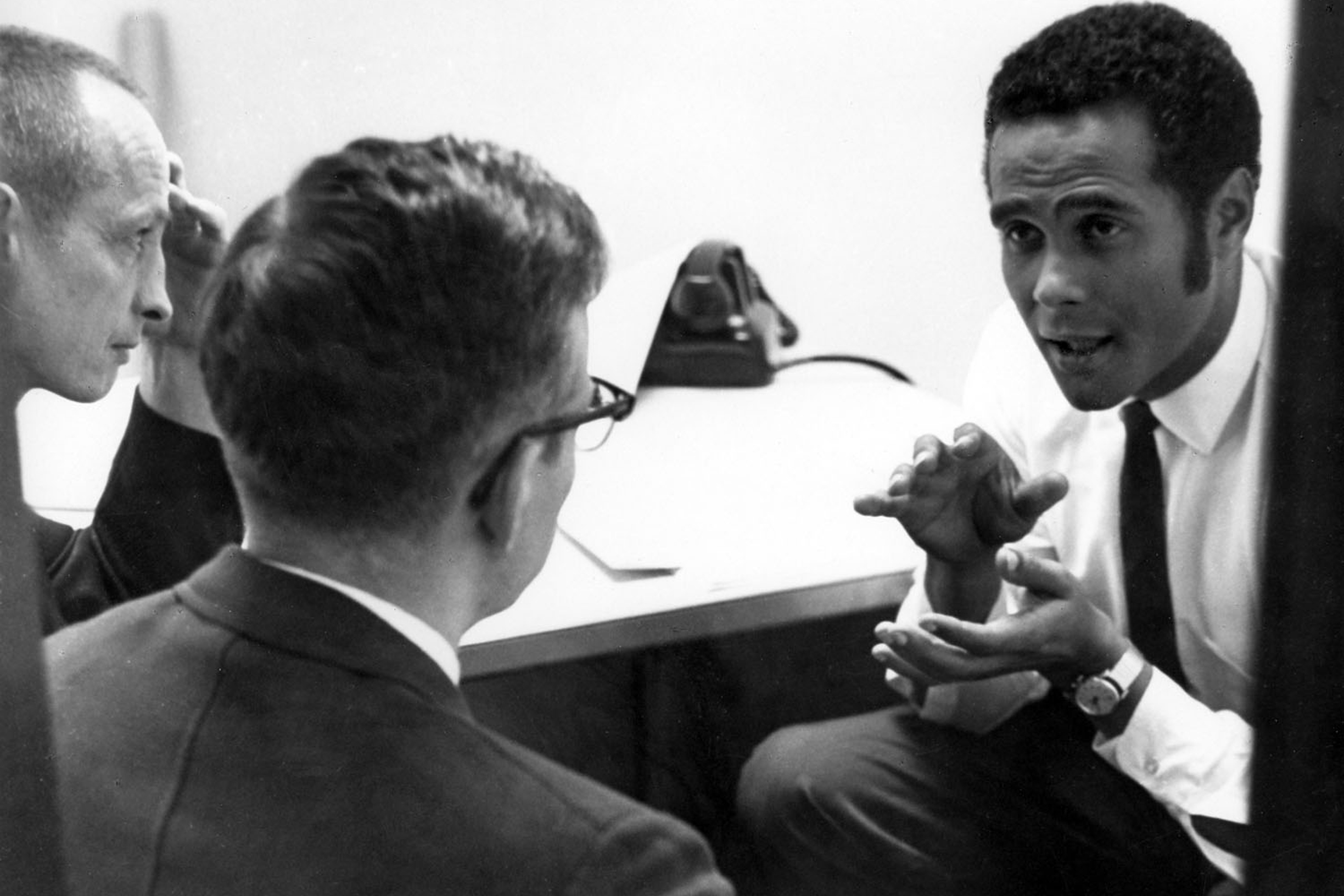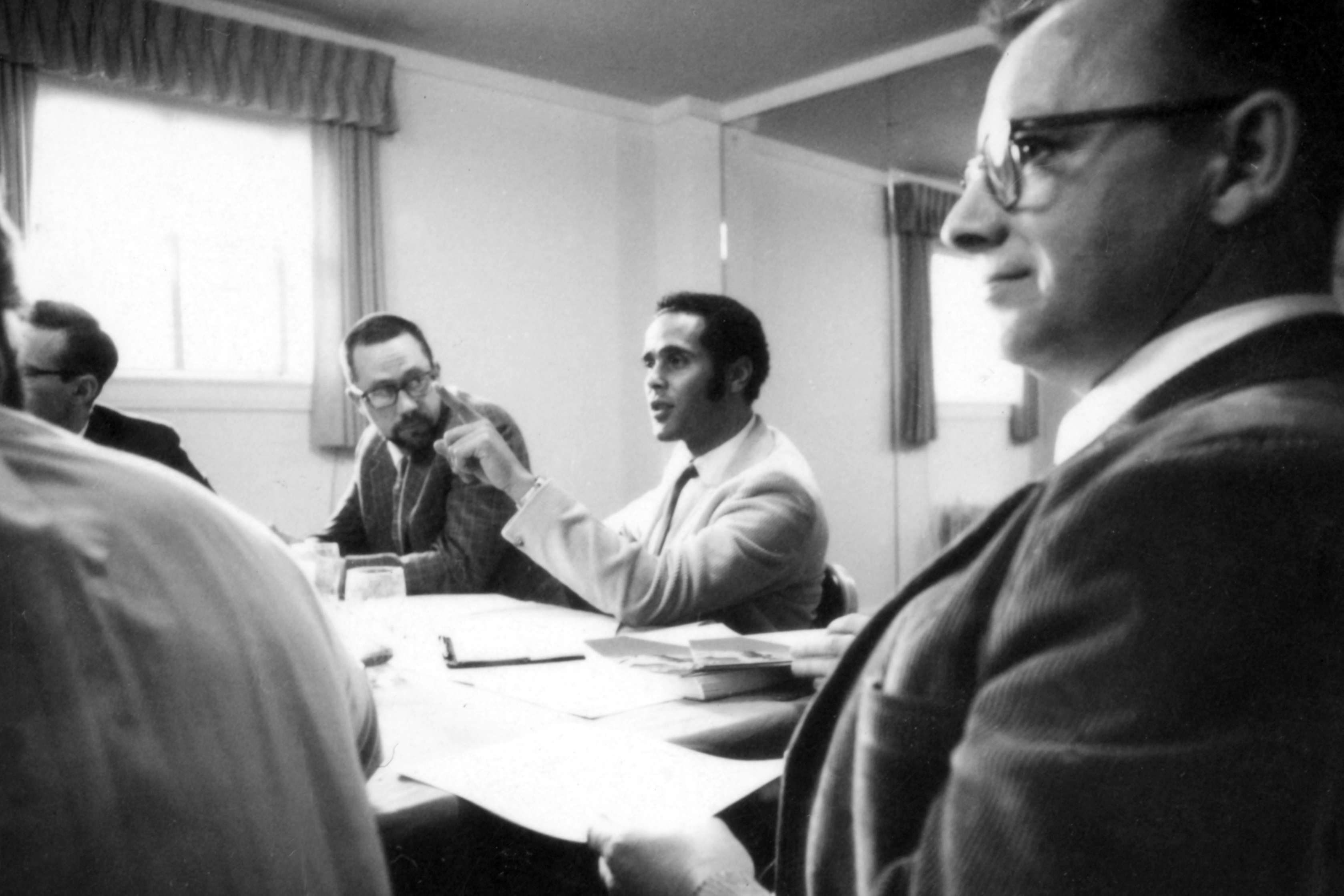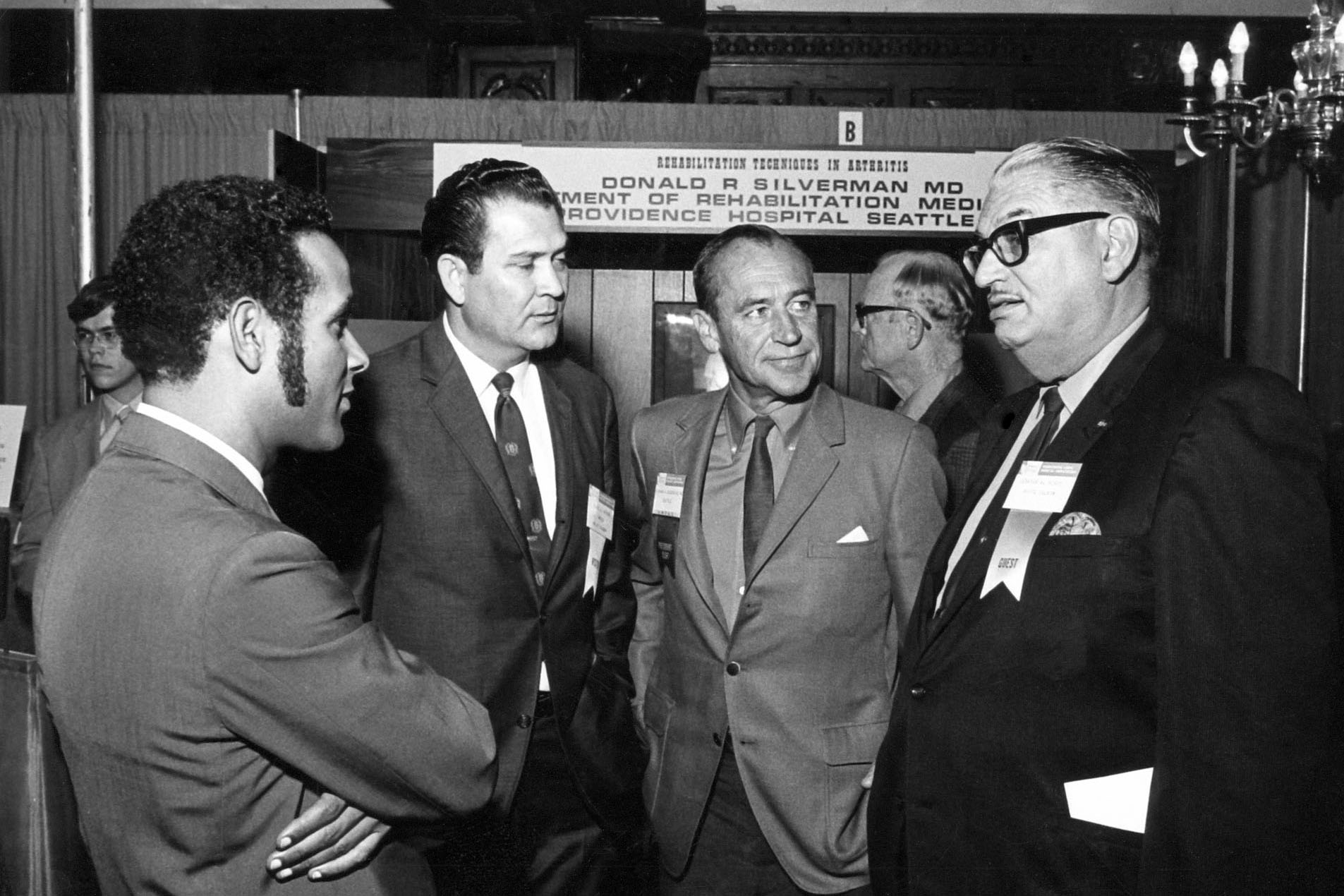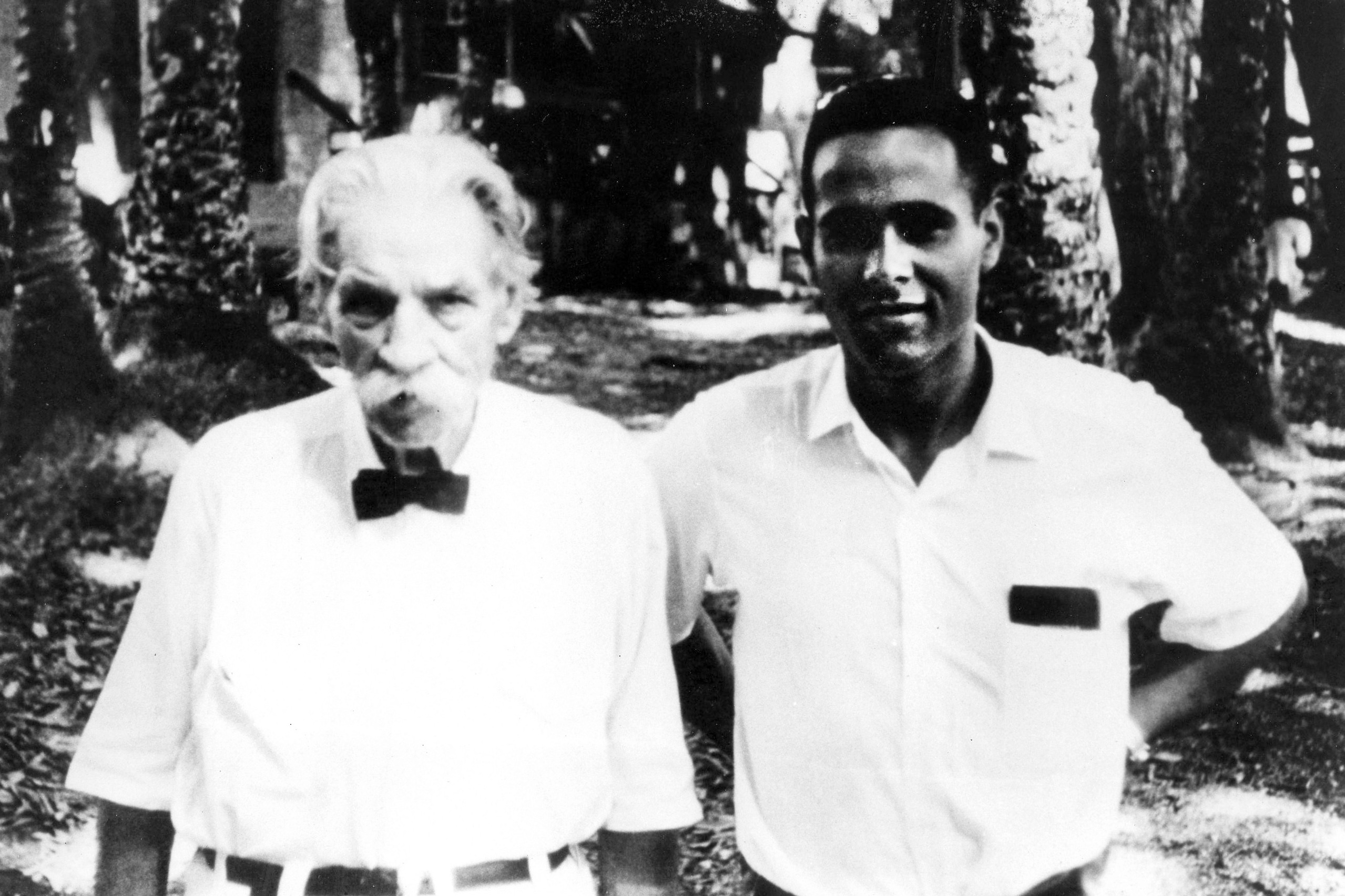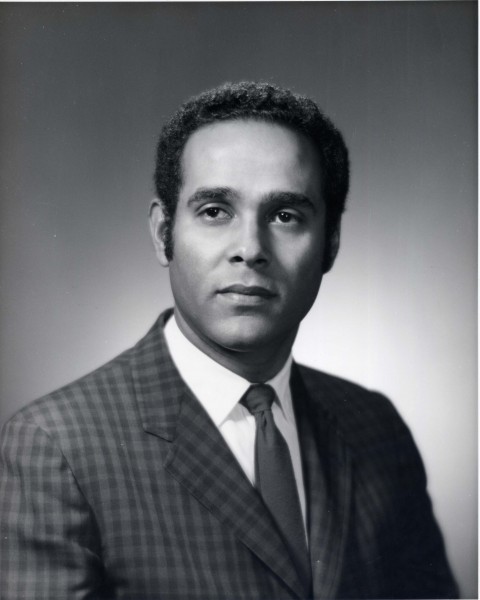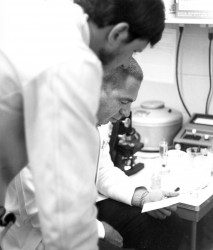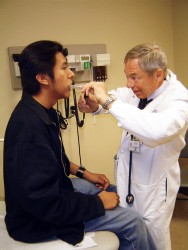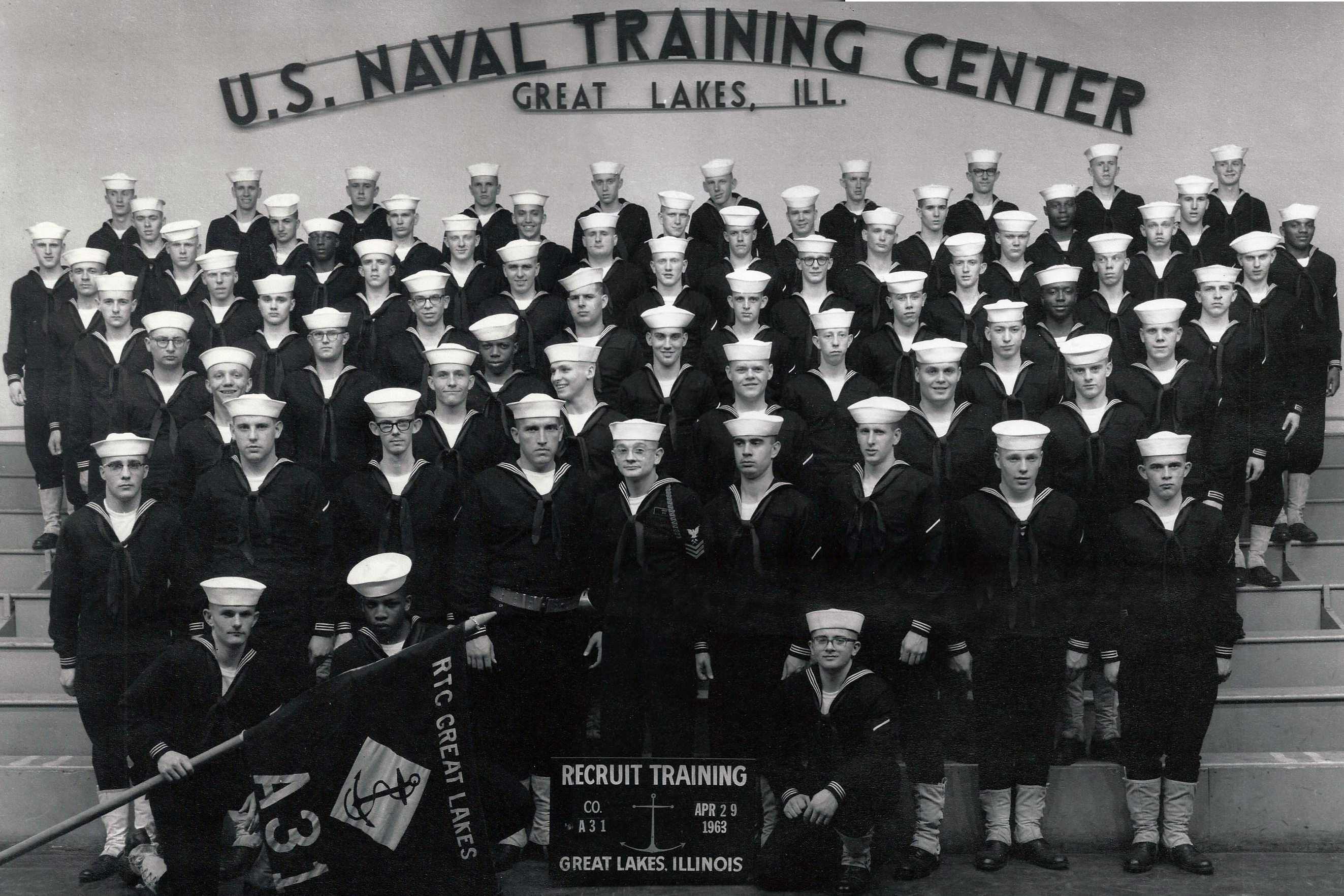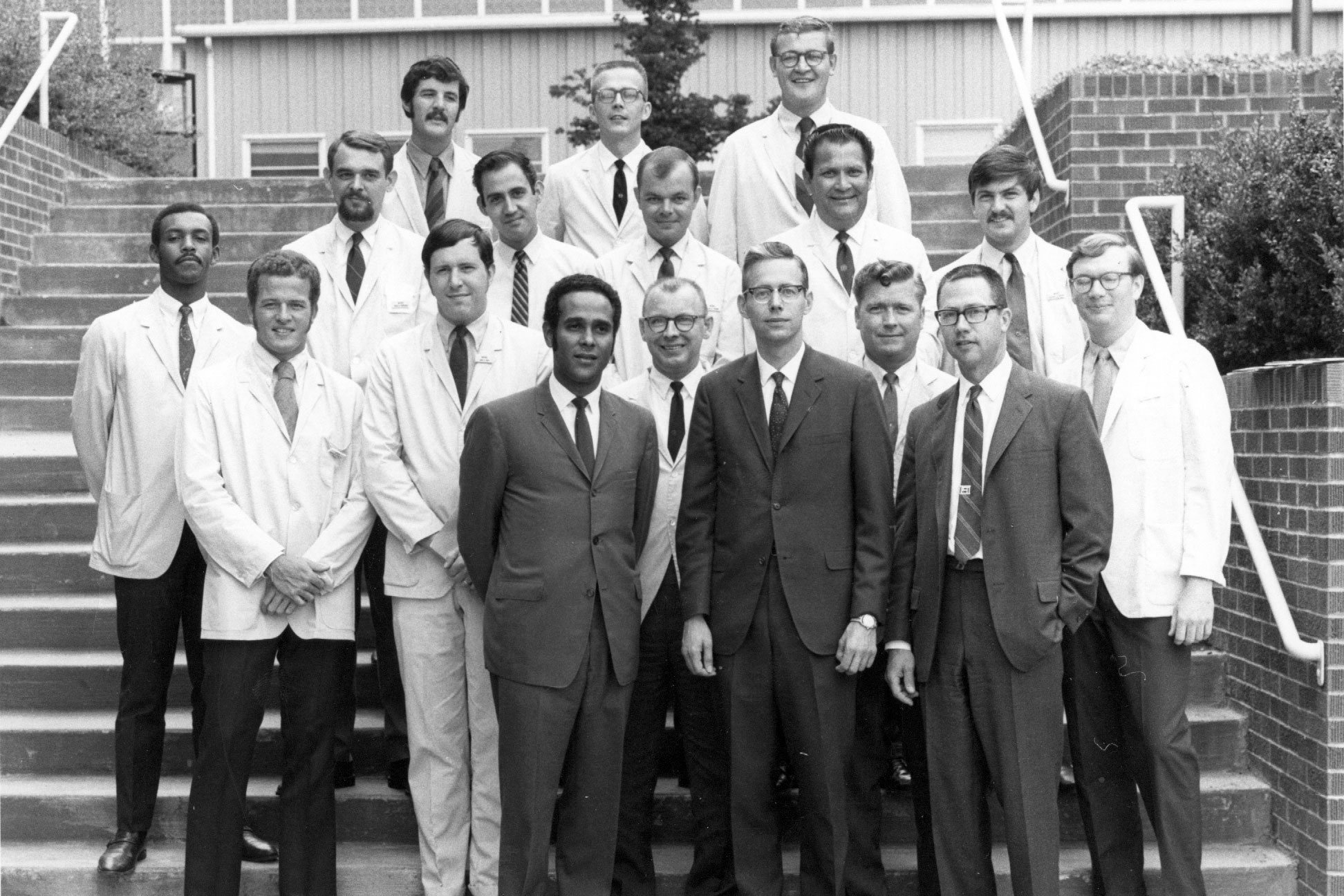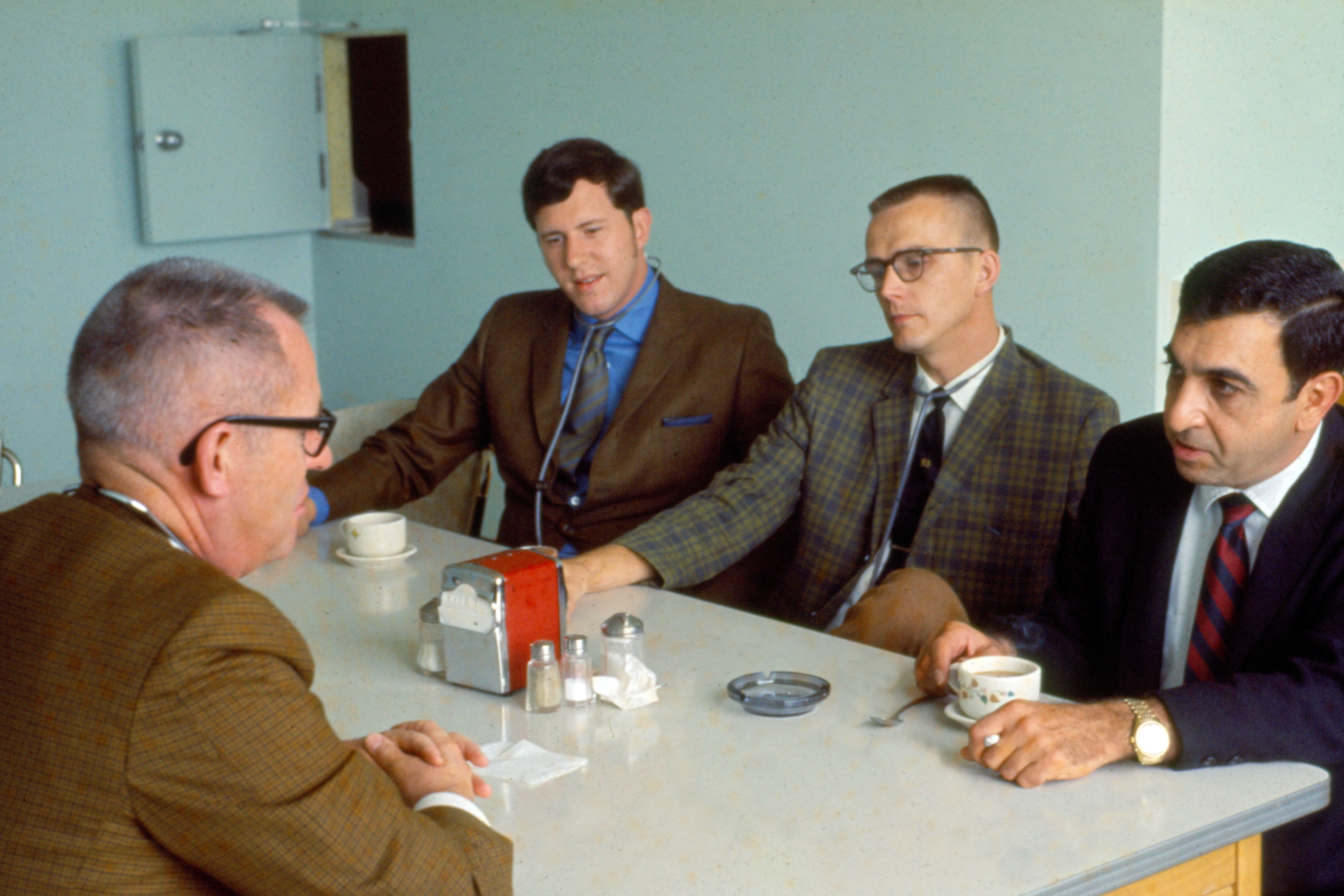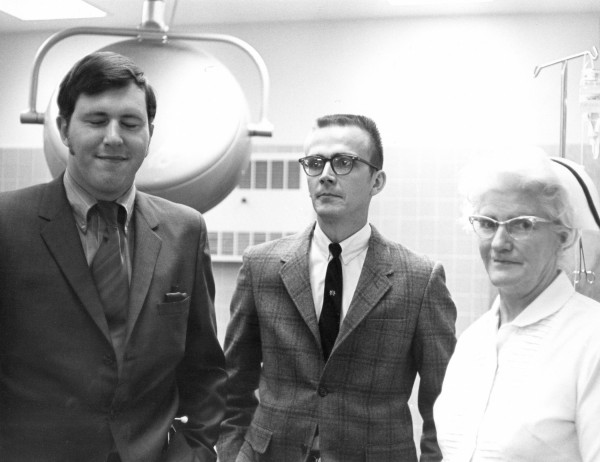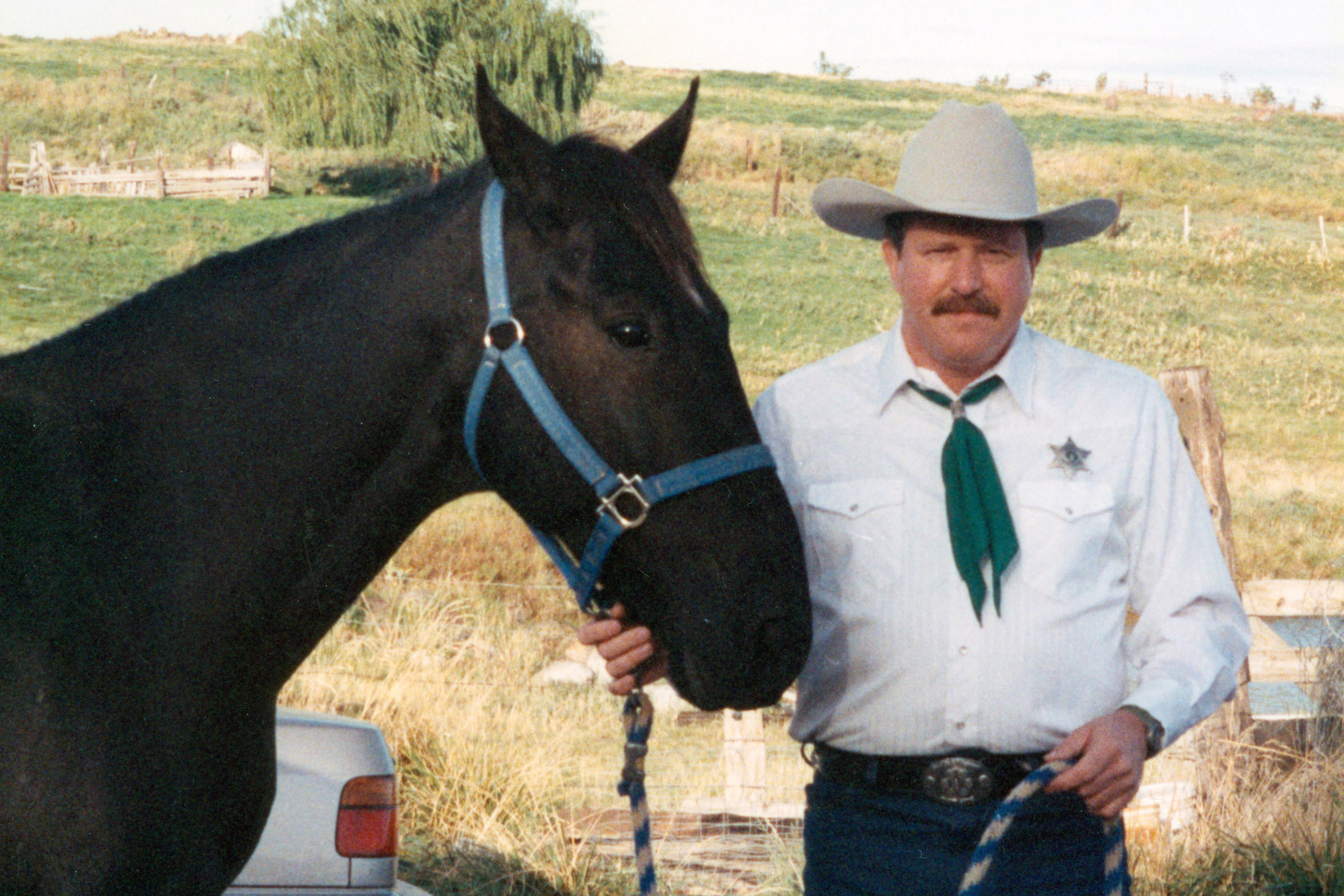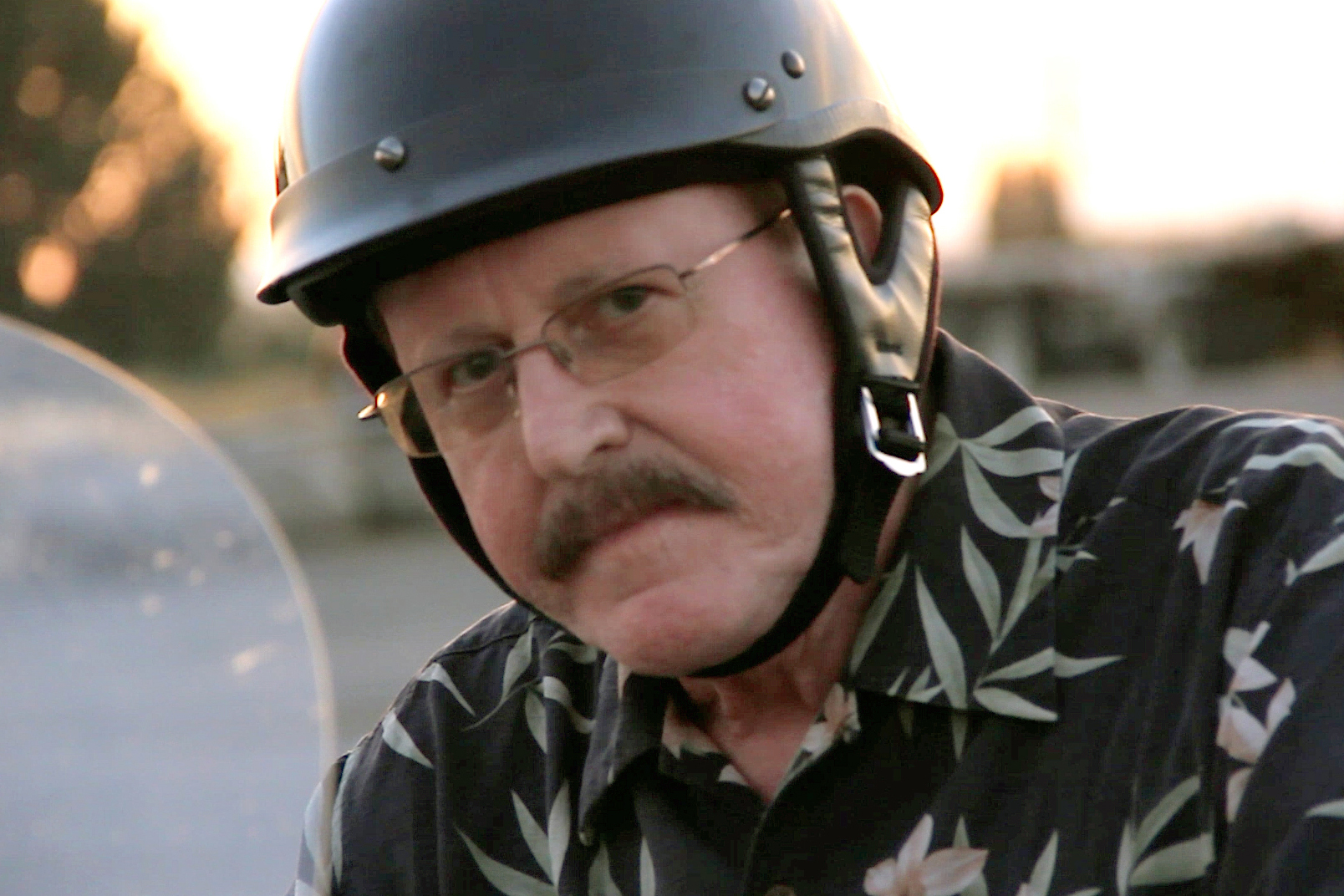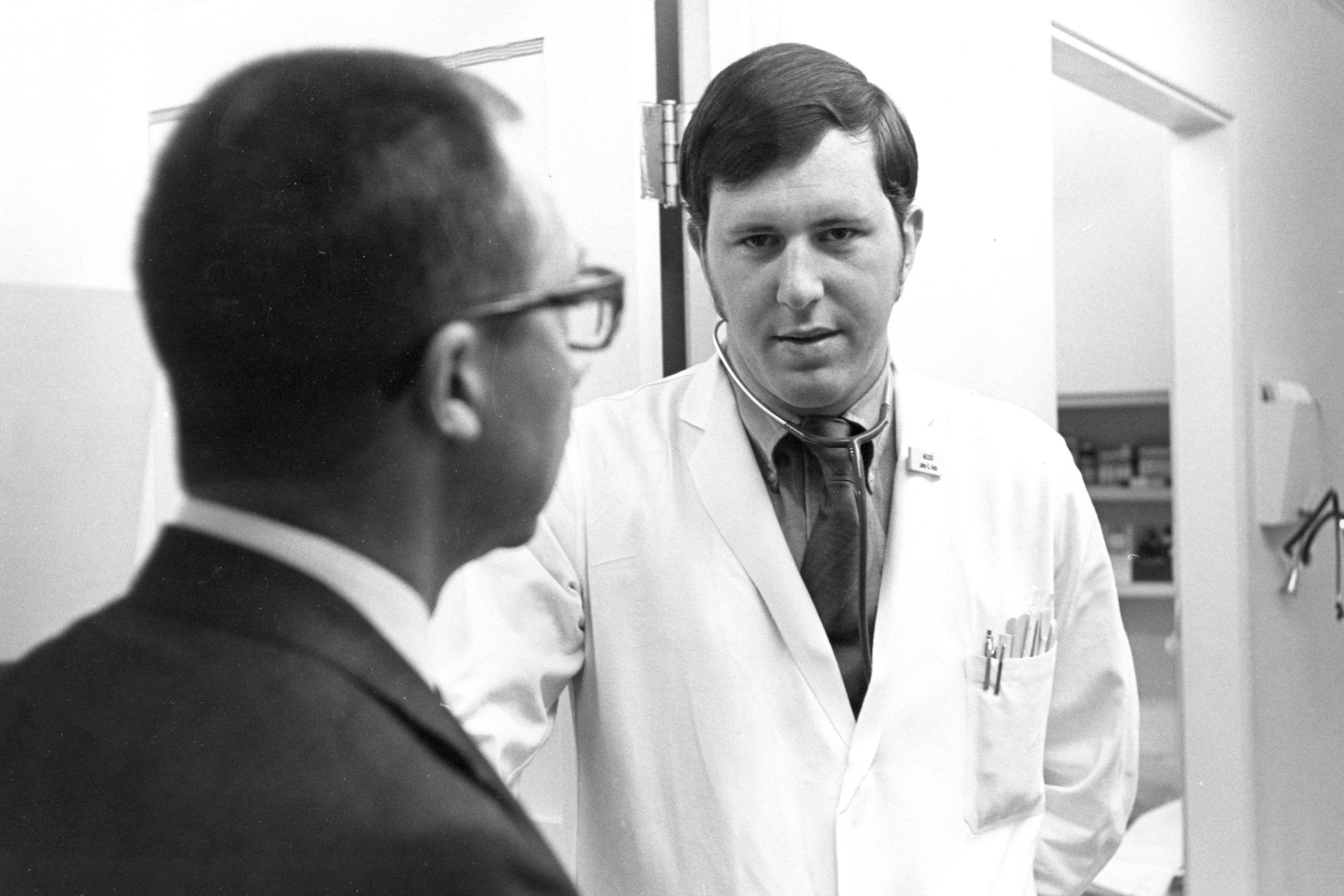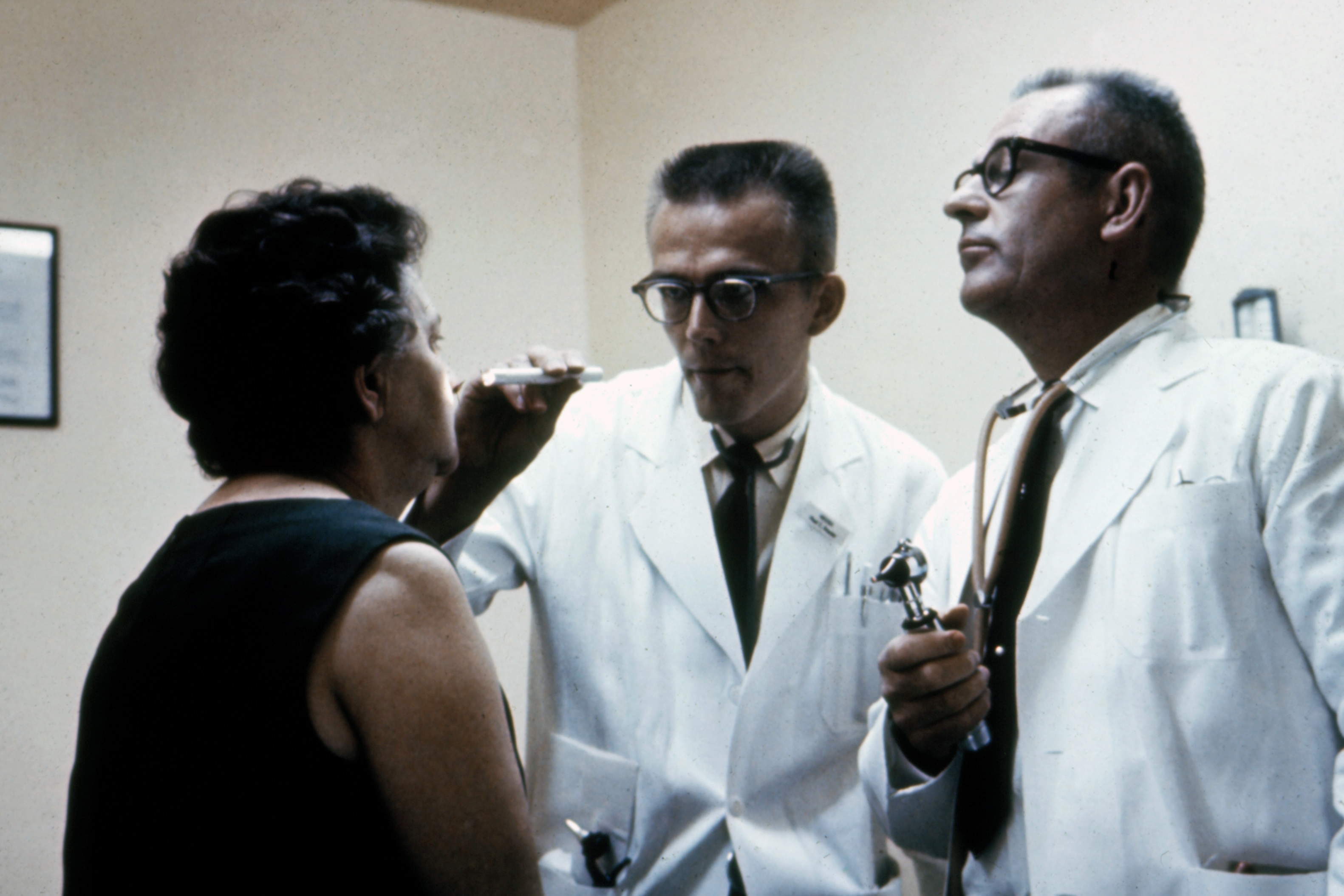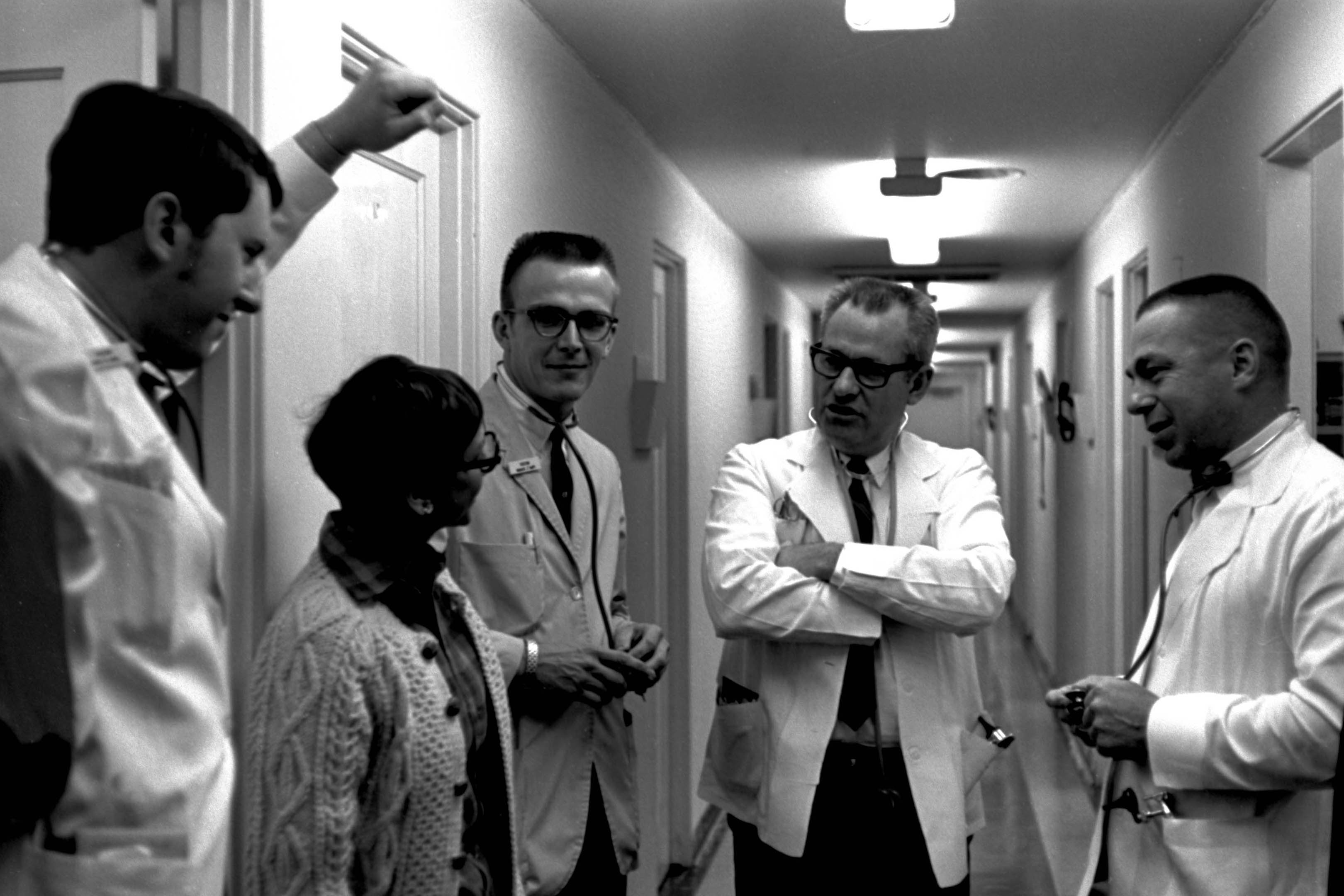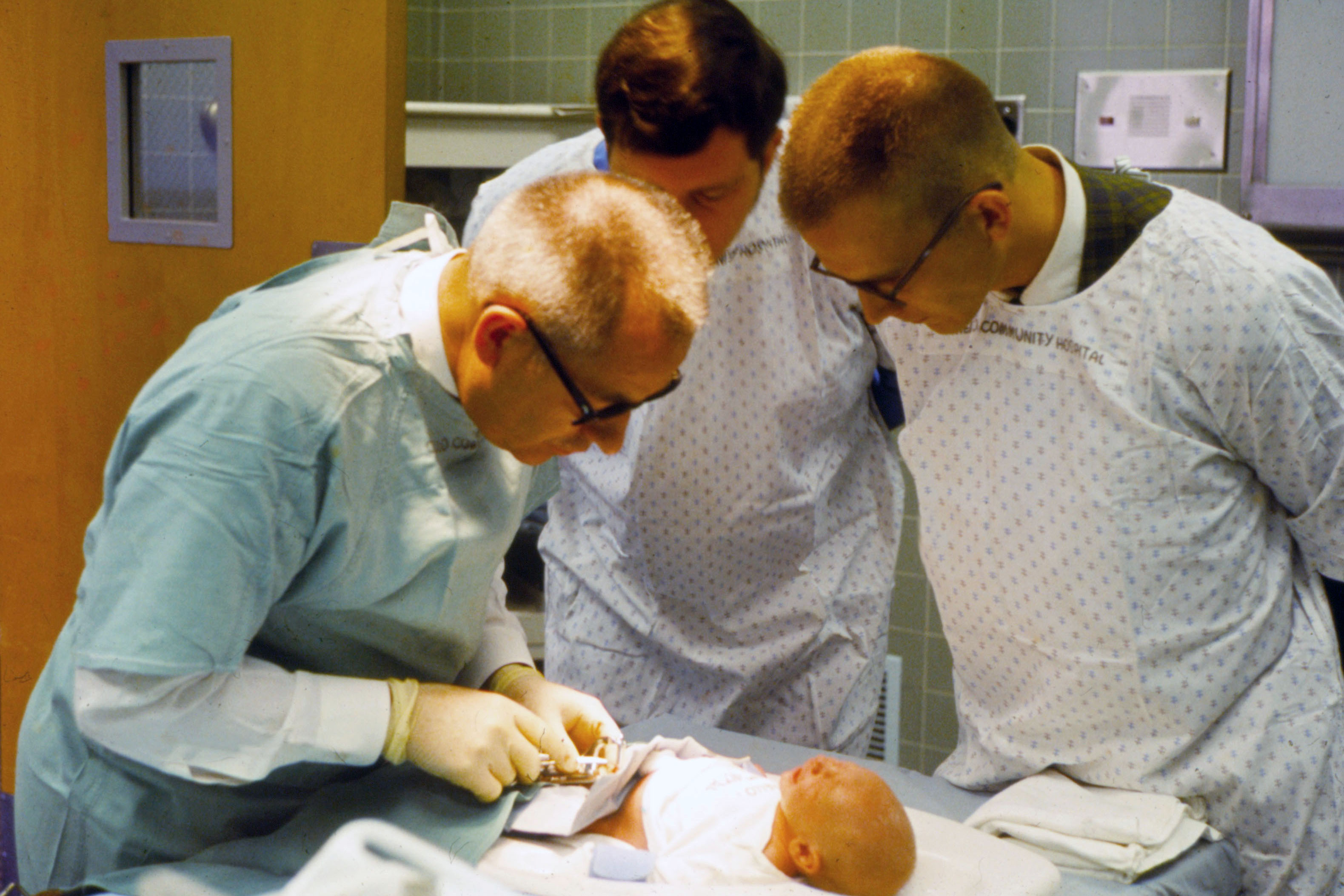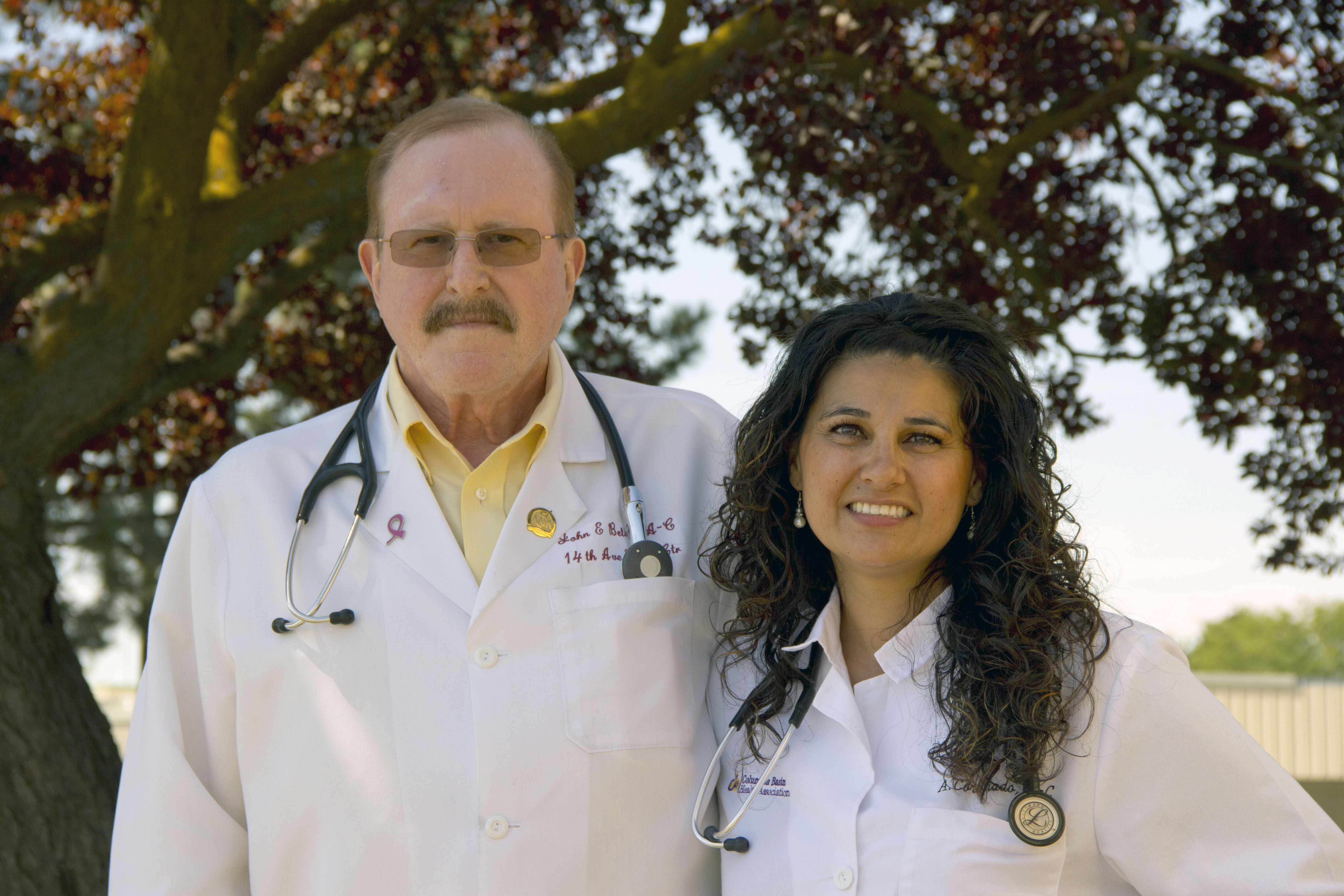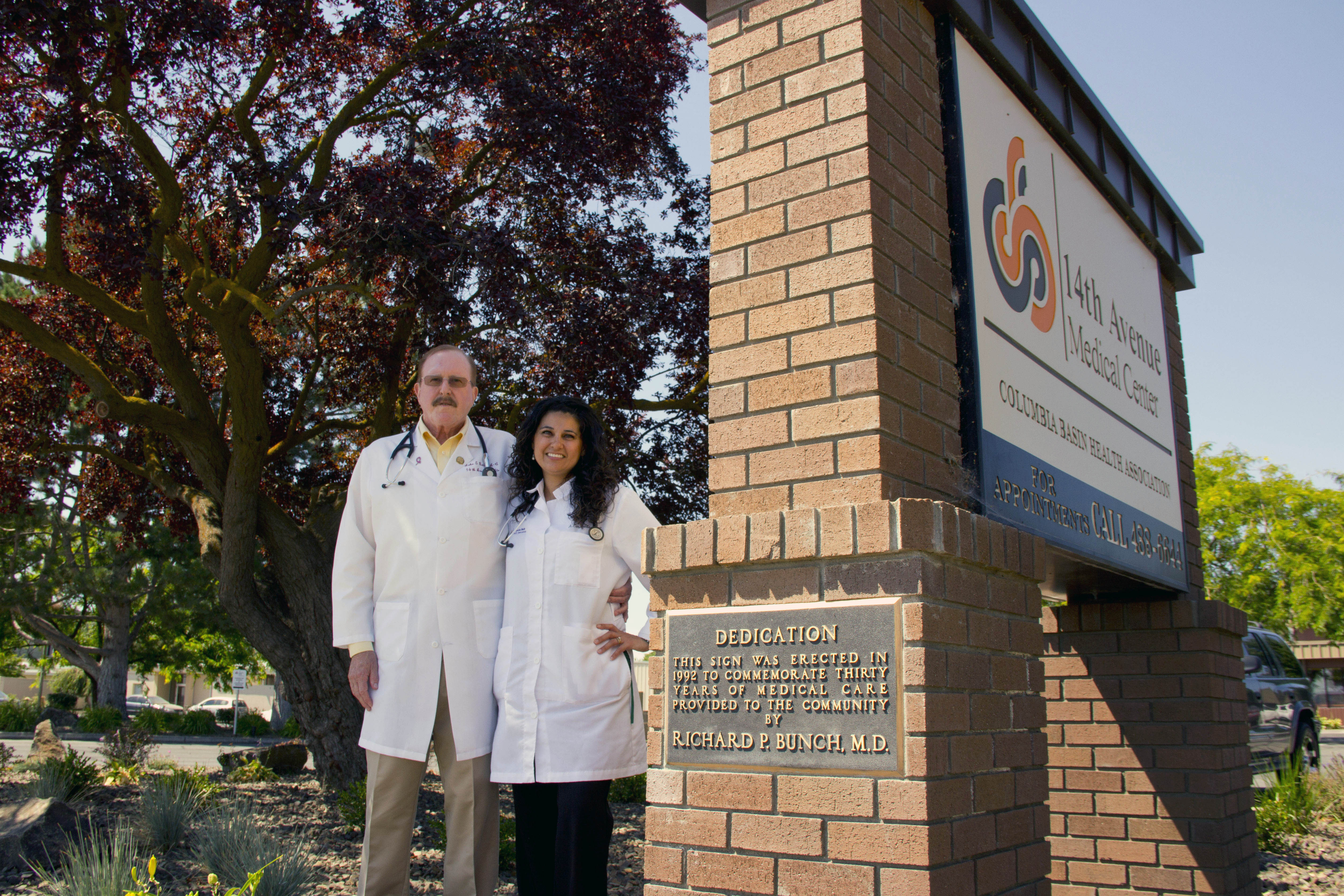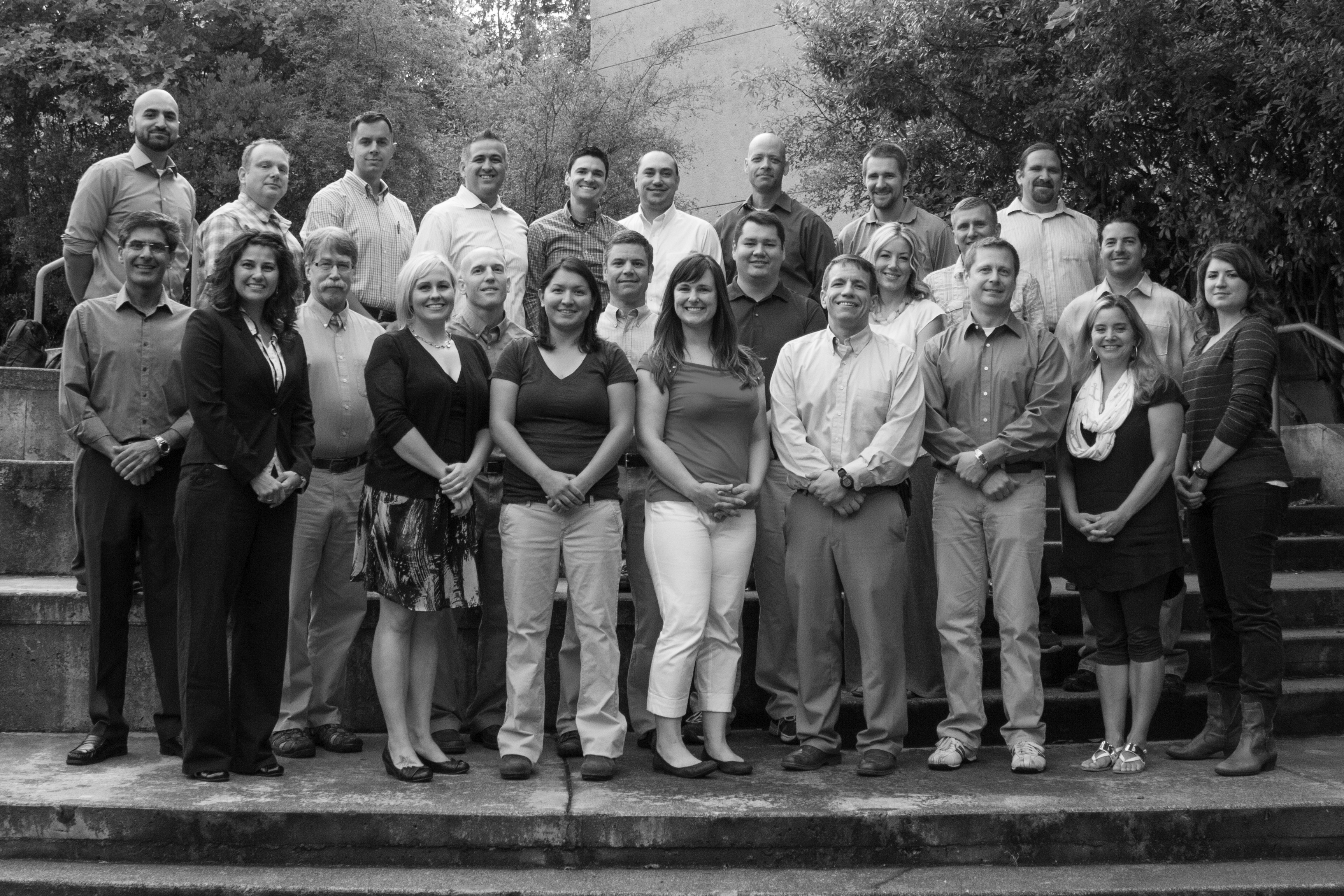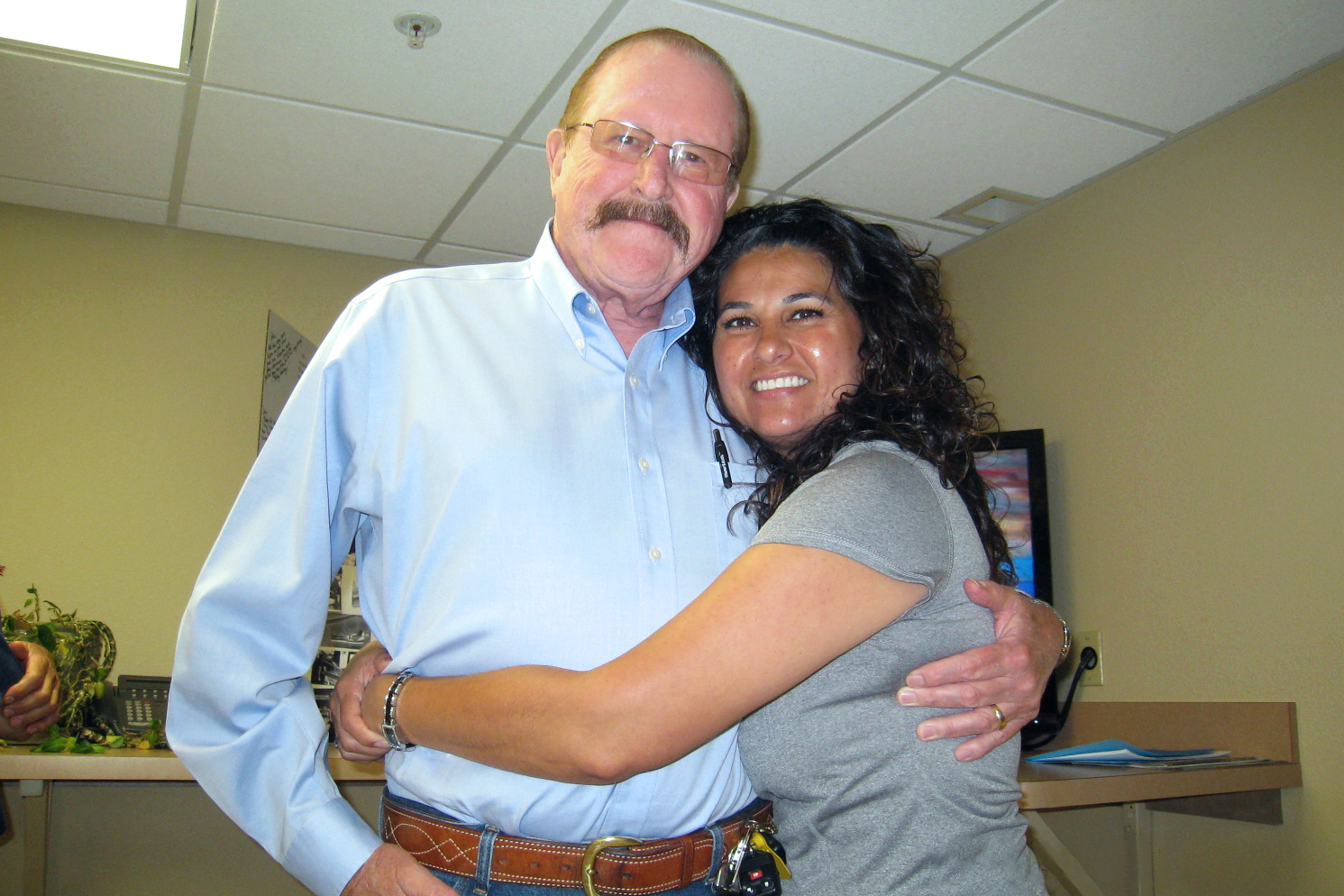The Well Suited Life of John Betz
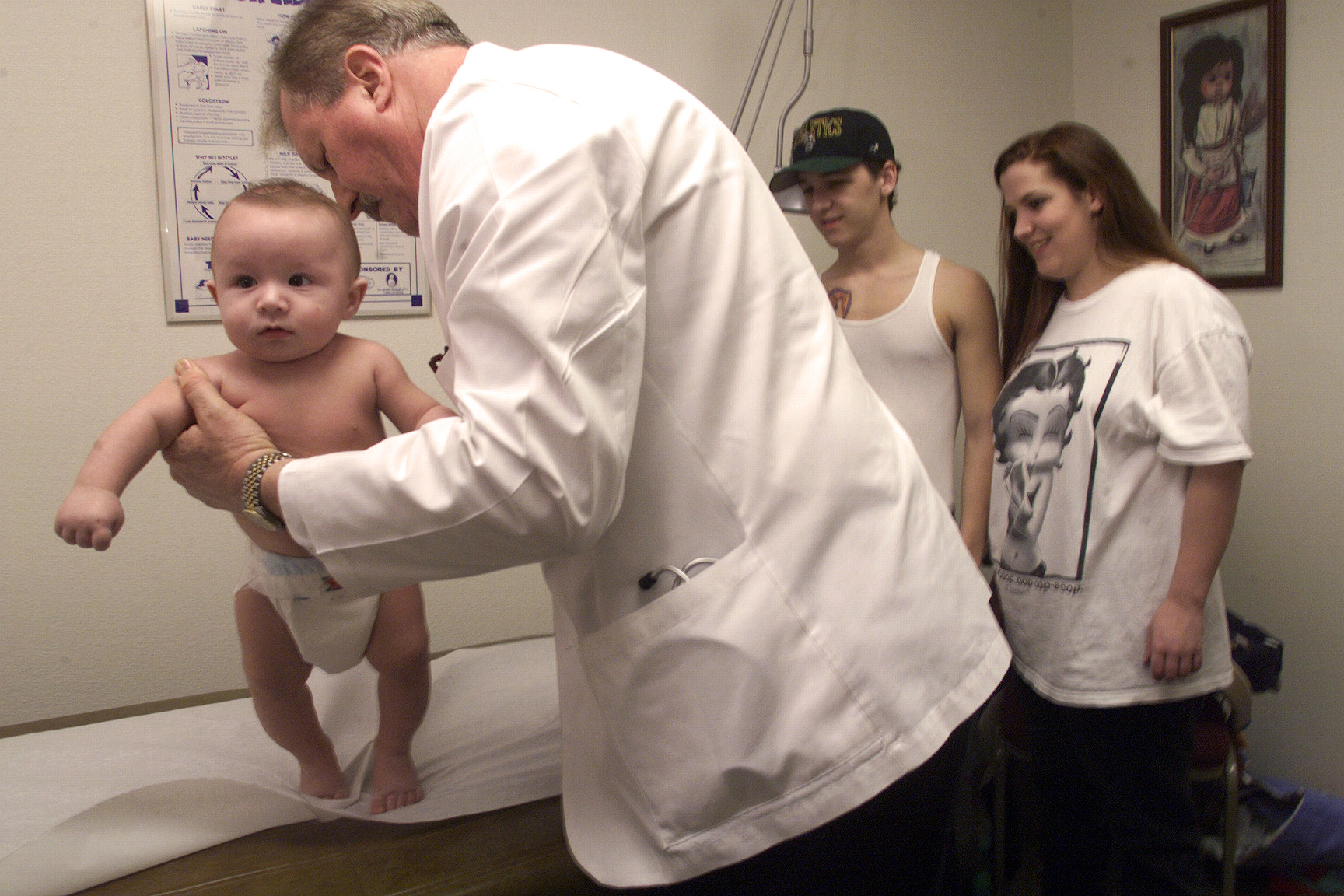
John Betz, an Othello physician’s assistant, does a well-infant examination on 4-month old Dominic Sheriff as his parents, Kyrone and Lisa Sheriff, watch. In 1999 the Washington Rural Health Association named Betz and colleague Paul Snyder practitioners of the year.
Introduction
John Betz, PA-C, is fond of espousing his formula for success as a physician assistant in rural Othello, Washington. “You don’t do well in a small town if you’re killing patients,” he says. Such a statement might seem flip but, in fact, it represents the risks that Betz and other early PAs felt at the start of their profession. Arriving in this small rural agricultural town in 1969, Betz stood at the forefront of a new category of healthcare workers. In fact, the concept of physician assistants was so new and unproven—and so challenging to the status quo—that even Betz believed that his participation in MEDEX Northwest Class 1 was his stepping-stone to eventually entering medical school.But it didn’t work out that way. The longer Betz stayed in Othello, the better he liked it, both the place and his new profession. “Being a little bit bigger fish in a little bit smaller pond suited me well.”Now, after 44 years as a physician assistant in Othello, John Betz is retiring from the 14th Avenue Clinic. And just as time has seen him assisting in the delivery of the grandchildren of his very first Othello patients, Betz has witnessed over the course of his career the birth and evolution of physician assistants from a pilot program into the solid mid-level profession presently in widespread use across the US medical system. He has contributed significantly to the growth of the physician assistant ranks, having precepted no fewer than seventy-six PA students right there in Othello. Beloved by patients and students alike, he was essentially recreating himself for future generations. To know John Betz is to understand the history and importance of PAs in this country.
Pioneering Initiative
John Betz was one of fourteen military veterans selected to participate in the University of Washington’s MEDEX physician assistant training program in 1967. All came to the program with prior medical training as Army Medics, Air Force Medical Techs, or Navy Corpsmen. MEDEX founder Dr. Richard Smith was driven by the need to multiply his hands 1,000 fold. All this came from Dr. Smith’s time in the Peace Corp, in particular, his experience at a work camp in Cuba in his college freshman year.
“I saw what this practical nurse was doing in terms of taking care of all these people,” he says. “She had less than a year of training— maybe two or three months of training. She had a doctor come into this clinic two days a week, and the rest of the time she took care of most of these patients. Those that were too sick she had to come back when the doctor was there. That had such an impression on me that I gave up my idea of being a music major in college. I changed to premed.”
I saw what this practical nurse was doing in terms of taking care of all these people, she had less than a year of training—maybe two or three months of training.
Dr. Richard Smith
Later, Dick Smith became familiar with the Feldsher system that emerged from the Soviet Union as far back as the time of Peter the Great. Feldshers were mid-level practitioners used by the military to provide healthcare to wounded soldiers and civilian populations all across the Soviet Union. Considering the problems faced by the United States at that time with considerable gaps in healthcare access—especially in rural areas—the concept of a mid-level practitioner was something that Dick Smith knew would work. “What I had to figure out was how to do it outside of the Soviet Union,” he said.
Dr. Smith arrived to the PA cause after a significant career milestone. While working for the US Public Health Service during the 60’s, Dr. Smith was assigned to lead the effort to desegregate 6,000 hospitals in the United States as a required part of the development of Medicare. While still under the direction of the US Surgeon General, Dr. William Stewart, Smith requested an assignment in Washington State. Already familiar with leadership at UW, Smith wanted to leverage that to develop a pathway for the vast numbers of medically trained military personnel to reenter civilian life with a qualified career as mid-level health practitioners. At that time the concept was discussed as “physician extenders”, perhaps to soften the blow to the established medical profession. Dr. Stewart assigned Dick Smith to work with Dr. John Hogness, the Dean of the UW Medical School. “John Hogness thought it was a crazy idea,” Smith recalled, “but one that sounded intriguing to him.”
By 1967, a small faculty and staff were hired for the pilot project known as MEDEX Northwest. Offices were located just off-campus in the University District Building at the corner of NE 45th Street and 11th Avenue NE.
The View from Othello
The modern community of Othello, WA, evolved from a 1950’s irrigation project that brought water from the Columbia River to the desert, transforming it into an agricultural center. The influx of workers and their families stretched the limited medical services.
In 1962, Dr. Richard Bunch moved to Othello from his native Oregon to join Dr. Kenneth Pershall, a general practitioner with skills in surgery, anesthesia and general medicine. “The needs were for total family care from cradle to grave,” says Dr. Bunch. “This included surgical needs because people had difficulties getting out.” The accommodations for emergency transportation were non-existent at that time, and many procedures had to be addressed right there in Othello. Located 180 miles east of Seattle and 100 miles southwest of Spokane, Dr. Bunch says, “We found ourselves up day and night trying to care for these people, and we could not get help to do that.”
The problem was that medical school graduates weren’t interested in relocating to rural areas. Most of them had had experience in bigger cities where there were plenty of jobs. There were many attempts by Drs. Bunch and Pershall to lure other MDs to the area. They flew in the docs and their families. Pete Taggares was the biggest farmer in the area, and he had a corporate jet. After Drs. Bunch and Pershall wined and dined them in town, Taggares flew them around the Columbia Basin to show them the beautiful area. Eventually, the answer would come back “no”.
The need for help drove Dr. Bunch’s interest in the MEDEX program. Dick Smith traveled to Othello to present the idea. “It was very interesting to me,” says Dr. Bunch, who understood and appreciated the training of military Medics. “Part of my own clinical training was an internship at a Fairchild Air Force Base, where I had an opportunity to see the Medics in action.” Later, Dr. Bunch had been a member of the Air National Guard out of Spokane. Working out of the dispensary there, he had an opportunity to rub shoulders with the Medics, and saw firsthand what their capabilities were. “I felt that those individuals could do the job needed in rural areas. So for me, it was a very doable proposition.”
Dick Smith invited Dr. Bunch to become part of the selection process for MEDEX Class 1. Drs. Bunch and Pershall agreed to contribute their time and efforts to reviewing independent duty Medics and Corpsmen candidates for the available slots. Part of the agreement was that the doctors would take on a student for their clinical year, mentoring them during the preceptorship phase of their formal education. If all worked out well, the student would come to work for at their Othello clinic after graduation. As Dr. Bunch recalls, “The plan was to train those individuals, and they would in turn come here.” In fact, after graduation Drs. Bunch and Pershall offered employment to two of the students: John Betz, from the Navy Corps, and Paul Snyder, an Air Force Operating Room Technician.
There was a dire need for medical care. Dr. Bunch and Dr. Pershall were working so hard—so many hours—that they weren’t going to keep doing it.
John Betz, PA-C
By the time John Betz arrived in Othello for his yearlong MEDEX preceptorship under Dr. Bunch, the Othello population was at 3,935. “There was a dire need for medical care,” says Betz. “Dr. Bunch and Dr. Pershall were working so hard— so many hours— that they weren’t going to keep doing it. They made it clear that if this didn’t work, they were heading elsewhere to practice.”
From Bethesda to MEDEX
The US Navy had supplied John with his initial medical training. “After three years of college, I joined the Naval Reserve, and went to Great Lakes, Illinois, for boot camp,” he says. Betz was accepted into the Hospital Corps School, and then sent to a receiving station in Philadelphia to work with patients. “I had the good luck to end up at Bethesda Naval Hospital, which is a wonderful place to work.”
At Bethesda, Betz started out on the pediatric ward and, after a year and a half, made senior corpsman on the pediatric ward. Betz worked there until the end of his six-year enlistment. He stayed at the Naval Hospital, but switched to the allergy clinic as a civilian allergy tech. “I made allergy serums, skin tested people, and did that sort of thing,” he says.
As a Petty Officer-Third Class, Betz wasn’t earning enough money to feed his wife and child. “I took a second job in an emergency room as an Emergency Room Tech 2,” he says. Essentially, his duties were that of a corpsman who could suture and give shots. While there, Betz decided to work on finishing up his undergraduate degree. “I attended night school at the University of Maryland a couple of days a week. They actually gave me 16 hours in a row every week where I didn’t have to be doing anything except writing papers, studying, that sort of thing.” Reflecting on that busy time, Betz jokes that after some time he finally learned the names of those who lived in his house: “my wife and my son.”
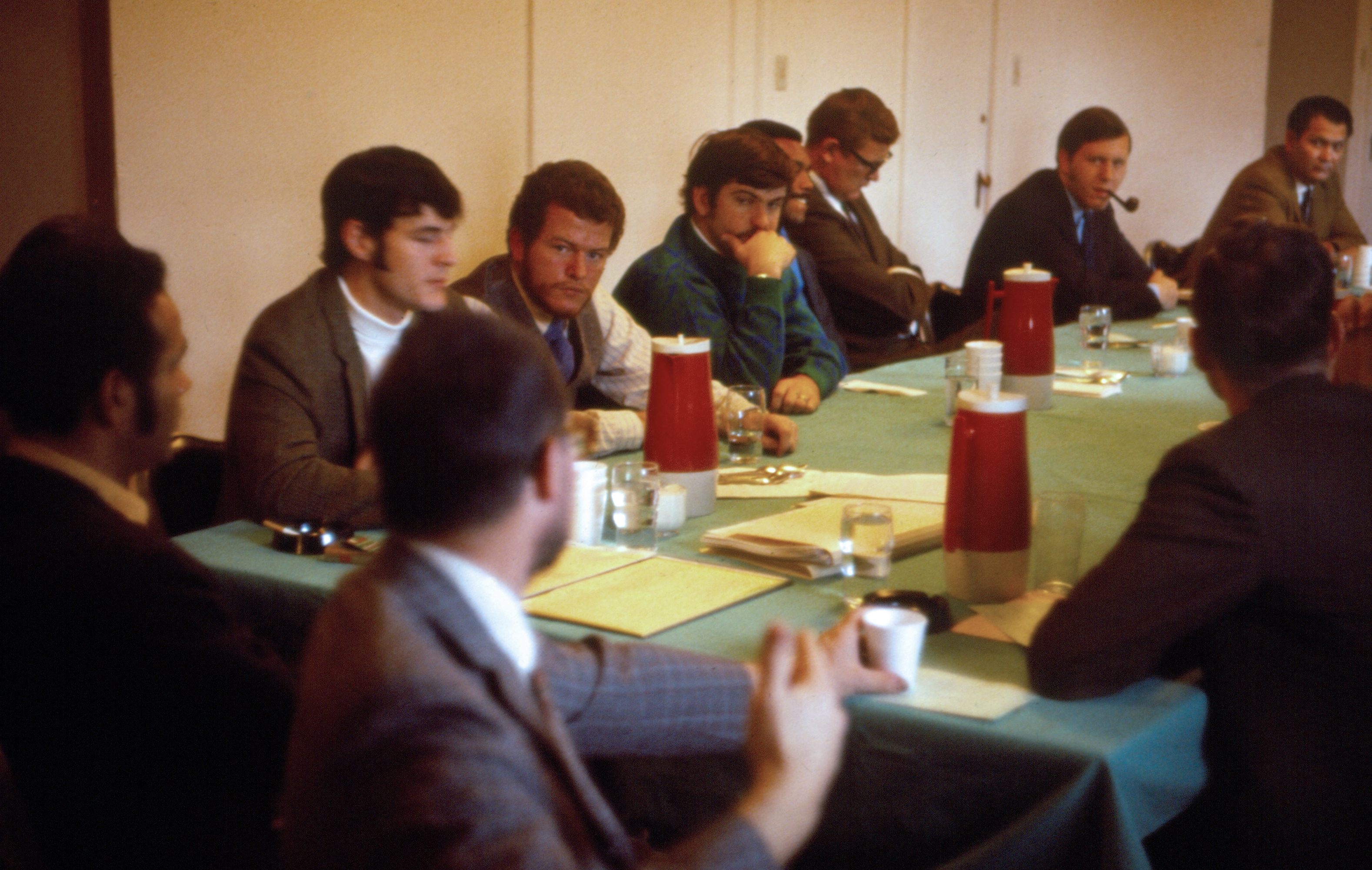
A meeting of the students and faculty of MEDEX in 1969. Dr. Richard Smith is to the far left. John Betz is at the right with a pipe.
One day while wolfing down his one meal of the day in the Bethesda Naval Hospital cafeteria, John Betz was introduced to Dr. Dick Smith, and the trajectory of his life changed forever. A woman who had set up John’s tuition payments to the University of Maryland was showing Smith around the hospital. Dick Smith was searching out candidates for his MEDEX program. The woman mistakenly identified Betz as someone studying to be a doctor. Dick said “Well, bring him over here, let’s talk to him.”
Betz recalls they had lunch together when Smith asked, “How can you eat so much?”. At 6’2″ and 140 pounds at the time, Betz was packing away two hot dogs, two hamburgers, three salads, four deserts and five milks. “It’s my only meal,” he replied.
Dick Smith spelled out the vision of the MEDEX program, and the role of physician extenders. “He said they were really looking for retiring chiefs with 20 to 25 years experience, but here’s an application. Fill it out, send it in, and we’ll see what happens.”
Betz received a positive response to his application, and was invited to Seattle for an interview before the selection committee. In Seattle, John roomed for the weekend with Tom Coles, a fellow candidate, Army Medic and Green Beret who served in Vietnam. Tom told tales of above the knee amputations and C-sections in the jungle without a tent. John thought, “I’m never going to get in this program. I took care of babies with ear infections, pneumonia and the like.”
Dick Smith deployed a rigorous approach to group interviews from his years in the Peace Corps. The candidates stayed together in small groups as they moved between different interview panels. “We had two days of interviews, every 15 minutes,” says Betz. “You got a schedule of different hotel rooms, and you would walk in, salute, sit down, sit up straight and say, ‘I like small towns, my wife likes small towns,’ and then answer their questions.” By design, there were practicing physicians among the selection committee who had a vested interest in the outcome. Among them were Drs. Bunch and Pershall of Othello.
“They sent us all home, then got together and had a meeting,” he says. The committee decided whom they were going to accept, and sent us a letter shortly after that. I got accepted to the first class.” Years later, Betz himself became part of the MEDEX selection committee process.
Our interests in John and Paul had to do with their personalities, their knowledge, and their experience of different areas of medicine. It was obvious to us that it was a great idea and would work well.
Dr. Richard Bunch
Dr. Richard Bunch confirms the events of that first selection committee. Both he and Dr. Pershall chose the applicants they liked—John Betz and Paul Snyder. First, the two Corpsmen needed to complete their 3-month didactic education in Seattle, then their clinical year placement was slated for Othello. Eventually, John and Paul were invited to visit Othello so the doctors could see how see how the two students might best fit into their community “Our interests in John and Paul had to do with their personalities, their knowledge, and their experience of different areas of medicine,” says Dr. Bunch. “In our minds, we could see how we might use their skills in our practice to our advantage. It was obvious to us that it was a great idea, and would work well for us.” Not only would bringing in John Betz and Paul Snyder facilitate the needs of the Othello community, but also give Drs. Bunch and Pershall some free time, too.
Adapting to Rural Life
Coming from a population-dense urban area— Washington, DC and Bethesda, MD— John Betz had easy access to culture and the arts. “We had season tickets to the symphony,” he says. “We would go see Victor Borge, and Peter, Paul & Mary. When we got out to Othello, that was not the case.”
John’s first attempt at adapting to rural life was to buy a black lab, buy a shotgun and take up duck hunting. “Dr. Bunch liked to do that too, so he and I would go duck hunting. A bunch of my patients had farms that had good duck and pheasant hunting.”
There must have been fairly good pheasant hunting in Adams County, because Roy Rogers and John Wayne were known to come to Othello to hunt during bird season.
Later, John joined the Othello Park Board, and became active in the Eagles Club. He took up horses and, for 20 years, was a member of Adams County Sheriff’s Posse, the local search-and-rescue group. “It was the bottom of the food chain for law enforcement, and I was the lowest intern in the group. But it was fun to do.”
Working Out the Details
In the early days of the PA profession, there was a requirement for a one-on-one match— one preceptor to one physician assistant. Dr. Bunch selected John Betz, and Dr. Pershall chose Paul Snyder. Betz’ experience was in Pediatrics. “I took care of sick babies. It turned out that training ended up being very good for me.” Othello was a young community, with new lives being brought into the world regularly.
We had individuals who were very competent, that were responsible, that these patients would report to. It was an incredible time savings.
Dr. Richard Bunch
Initially, the idea was that Drs. Bunch and Pershall would use the fledgling physician assistants on an overflow basis. What actually happened was that both John Betz and Paul Snyder developed their panel of patients. “This turned out to be wonderful, because we weren’t responsible for everybody,” says Dr. Bunch. “We had individuals who were very competent, that were responsible, that these patients would report to. It was an incredible time savings.”
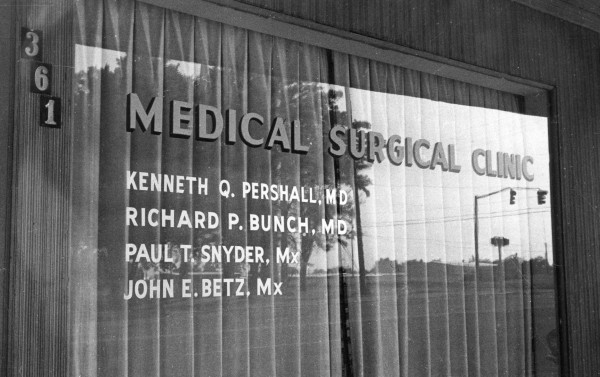
Once John Betz and Paul Snyder were hired by Drs. Bunch and Pershall, their names were added to the clinic storefront on Main Street in Othello.
John Betz concurs: “We were kind of a Godsend to those guys. Their initial plan was for Paul and I to see the runny noses and that kind of stuff, leaving the docs more time for the diabetics, tuberculosis and serious complicated problems. But it didn’t work out that way. I developed a group of patients that I loved, and they put up with me. Everybody had a full schedule. We were all busy, and we were flat fee.”
The doctors’ approach to precepting was, you get all the help you ask for, but you had to ask for it. “If I didn’t know for sure what I was doing, I would go talk to Dr. Bunch about it,” say Betz. “Sometimes, he would just tell me what to do and that solved the problem.”
I developed a group of patients that I loved, and they put up with me.
John Betz, PA-C
On other occasions John would come to Dr. Bunch, unsure what to make of the patient’s symptoms. Dr. Bunch would take a look at the patient, and say out loud, “John, you’re absolutely right. That needs amoxicillin, or that needs excision.” This, after John came to him saying, “This lady has this lump on her arm, and I don’t know what the hell it is.” The overall effect was to help build the patient’s confidence in the PA, a trick that John himself put into use when precepting his own students over the years. “That was helpful for us building our practice,” says Betz.
Drs. Bunch and Pershall saw patients very rapidly. Upon arrival, John and Paul had their first lesson in clinic charting. They were told, “Your professor at the U is not going to review this chart. As long as we can look at it and tell what happened, that’s all we want. We don’t want you spending the day charting. We want you to spend the day seeing patients.”
And that they did. Even with the addition of two PAs, the clinic doors were open at 8:00 am and closed no sooner than 6:00 pm. After that, there was the choice to keep the clinic office open until 10:00 pm to do patient callbacks, or join Dr. Bunch and Dr. Pershall over at the small Othello hospital for surgeries. Sometimes the decision was to work a stack of charts, and make phone calls. At other times John and Paul followed the doctors into surgery. “Obviously, the surgery was much more fun,” says Betz. “We didn’t mind it because it’s okay to stay up late doing fun stuff. It’s not okay to stay up late looking at ears. We chose the surgery. Great fun.”
Obviously, the surgery was much more fun. We didn’t mind it because it’s okay to stay up late doing fun stuff. It’s not okay to stay up late looking at ears. We chose the surgery. Great fun.
John Betz, PA-C
Their interest and capabilities with surgical procedures were the reason Othello did not have an ER doc for a long time. When a car accident came in, John and Paul would go to the hospital, sew up the patient, x-ray them, and ship them out as needed. “They didn’t have to pay us extra for that,” says Betz. “It was so much fun we didn’t care. ER work is just a constant orgasm. It’s fun all the time. We did this cheerfully.”
Necessity required that John Betz and Paul Snyder work as PAs coming out of the gate. “We started out as PA’s,” says Betz. “We didn’t start out just being watched. We were doing.” Dr. Bunch was very interested in teaching, and had picked up a few tricks from his own preceptors in residency. One trick was let your students do some real work. “He would ask to see your gloves at the end of the procedure. If they were bloody, he was happy. That meant you were in it, you’re doing it. We were smiling. He could see it under our mask. He was smiling. We loved it. We were, again, a little bigger fish in a small pond. We were popular.”
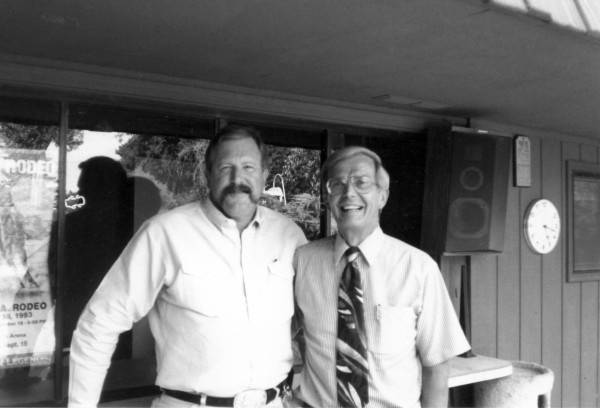
John Betz and Paul Snyder in 1993, 23 years into their careers as physician assistants in Othello, WA.
When Betz and Snyder compared notes with their twelve MEDEX classmates, they learned that that they were being used differently than their cohorts. “One of the guys had to have the doctor listen to hearts after he did the psychical exam,” reports Betz. “And he had to sweep up the clinic afterwards!” Some of the others reported that their doctor would have to be in the emergency room with gloves on while his PA student sewed up a cut.
Contrast that to Betz and Snyder in Othello. “We were almost whining because we had to admit patients, do histories, physicals, charting, and discharge summaries,” says Betz. “The other guys weren’t allowed to.”
At the Othello Main Street Clinic, there were two RNs, one LPN, and two office assistants. Dr. Bunch and Dr. Pershall had their individual nurses room the patients, and take their vital signs. The LPN took x-rays and did lab. Even before John and Paul’s arrival in Othello, Drs. Bunch and Pershall took the staff aside and explained the situation. “We’re going to leave if this doesn’t work out. We’ve tried to get more docs, and we can’t.”
We’re going to leave if this doesn’t work out. We’ve tried to get more docs, and we can’t.
Dr. Richard Bunch
By the time John and Paul arrived, the nurses and staff were onboard. Betz reports on what he thought was standard operating procedure for all his cohorts. “Our nurses would get a fresh starched coat for us, put tongue blades in the pocket, and make sure both pens in the pen slot wrote. They checked the batteries in our otoscope, and placed a fresh prescription pad in our pocket. I think they would have shined our shoes for us if we came in scuffed.”
The gap between what was happening in Othello compared to other Class 1 member experiences was due to a lingering fear even among other MEDEX preceptors, and the medical profession in general. There was a sense that these mid-level practitioners posed competition, and this resulted in considerable caution, even among supporters. Dr. Bunch recalls the general attitude of the Washington State Medical Association during those early years of the PA profession. “Within WSMA, there was a fear that MEDEX would split off into their own sector, hang out their own shingle, and take over with their own practice of medicine.”
During the early years of MEDEX a lot of effort went into dispelling this notion, with outreach and communication efforts pitched directly to doctors. Now with years of PAs and MDs working side by side, the alliance is a practical solution to the healthcare needs of Americans. Any fear of a breakaway was “one of the things that never happened because we work as a team,” says Bunch. “I don’t feel that it’s a fear today because of the incredible need, and that drives it a lot. I think that if physicians were in extra abundance there may be some concerns. The expertise of the mid-level is good, and they know their limits. We work on par with each other, more or less. It’s a very comfortable relationship.”
Recognition and Success
Within two years of their placement in Othello, John Betz and Paul Snyder became the focus of a lengthy story on the CBS Evenings News entitled, “National Doctor Shortage Exits”. Running at 6 minutes, the 1972 black and white footage is an invaluable time capsule, a clear glimpse into the issues and problems that Dick Smith and PA profession hoped to address. On camera, younger versions of John Betz, Paul Snyder, Dr. Richard Bunch and Dr. Kenneth Pershall speak about the critical health needs of rural America, and the absence of qualified medical providers to work with the underserved. Physician assistants, or Medex as they were called at the start of the profession, were touted as the solution.
 Later came an article in Time Magazine, and then further evening news coverage on NBC of fellow MEDEX Class 1 member Mark Patterson who had been placed in Tonasket, WA. Behind this PR surge was the genius of founder Dr. Richard Smith. He used marketing resources to better prepare the public and medical profession for changes to the US medical system. Dr. Bunch had provided positive reports back to Dick Smith, who realized something special was going on with his two Corpsmen in Othello. John Betz and Paul Snyder received the lion’s share of the media coverage. MEDEX and Othello were held up as a model for the future in rural healthcare.
Later came an article in Time Magazine, and then further evening news coverage on NBC of fellow MEDEX Class 1 member Mark Patterson who had been placed in Tonasket, WA. Behind this PR surge was the genius of founder Dr. Richard Smith. He used marketing resources to better prepare the public and medical profession for changes to the US medical system. Dr. Bunch had provided positive reports back to Dick Smith, who realized something special was going on with his two Corpsmen in Othello. John Betz and Paul Snyder received the lion’s share of the media coverage. MEDEX and Othello were held up as a model for the future in rural healthcare.
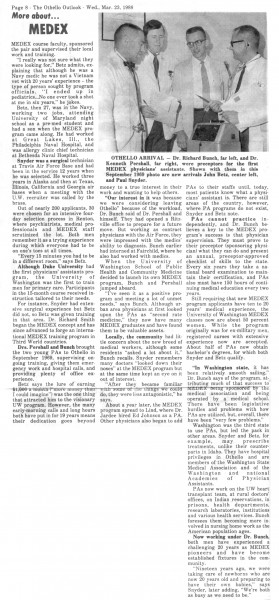 Dr. Richard Bunch became an advocate for the MEDEX program. He was selected for a sub-committee on the State Medical Quality Assurance Commission. His efforts went to enact legislative changes that favored the use of the PAs. Before long, he was traveling to Utah, North Dakota, Oregon to share the experience of integrating physician assistants into Washington State medical care.
Dr. Richard Bunch became an advocate for the MEDEX program. He was selected for a sub-committee on the State Medical Quality Assurance Commission. His efforts went to enact legislative changes that favored the use of the PAs. Before long, he was traveling to Utah, North Dakota, Oregon to share the experience of integrating physician assistants into Washington State medical care.
“It is my opinion that the needs today are similar as to what they were then,” says Dr. Bunch, now 78 years old and still seeing patients. He continues: “As far as the future of mid-level today, I believe the health care crisis is an oncoming thing. With Obamacare, we know that we are going to see an increased need for medical practitioners. Meeting this need through mid-level approach, where the pipeline isn’t as long, is an excellent way of doing it as long as there is adequate oversight established. It’s the best way that I can think of to achieve it.”
It is my opinion that the needs today are similar as to what they were then.
Dr. Richard Bunch
Dr. Kenneth Pershall passed away in 2011, Paul Snyder retired 12 years ago and, more recently, John Betz retired in June 2014. Dr. Richard Smith has long since retired, living in Oahu, Hawaii. Reflecting on their collective efforts, Dr. Bunch holds a soft place in his heart for all that came before. “It was a joint effort,” he says. “It was so cool to be part of a program that was so successful. And, you know, it certainly filled a need that was recognized by the whole country. Realizing that you’ve been able to make a difference is, you know, pretty heady.”
Passing the Torch
There are three things that dominate the Othello landscape today: the red and white striped water tower just outside town, the Walmart Superstore at the east end of Main, and the CBHA Clinic in old downtown. All three are important parts of life for the 7,532 Othello residents, nearly double the population from the start of John Betz’ career. In 2004, the Columbia Basic Health Association, a federally funded community clinic consortium, purchased Dr. Bunch’s 14th Avenue Clinic, instantly providing Dr. Bunch’s clinic with considerable more resources.
Under the guidance of CEO Greg Brandenburg, the impressive CBHA Clinic on East Main Street houses the association’s administrative offices and caters to the town’s large Spanish-speaking population. Further down the road is the 14th Avenue Clinic, the town’s second clinic after Drs. Bunch and Pershall moved operations from the original Main Street storefront clinic years ago. Today, at any given time, there are at least four physician assistants working for the association between the two clinic locations.
Annie Coronado is one of those PAs. With a background in nursing, the title of physician assistant is still new for her. In August of 2013, she graduated from MEDEX Yakima Class 18. Behind her, all the way, was John Betz.
Annie came to CBHA fourteen years ago as a Registered Nurse. When the two clinics merged in 2004, she came to work for John Betz at the 14th Avenue Clinic. “I worked with John for eight years,” she says. The first two years were about getting to know one another as an RN and a physician assistant working together. “Then, I started a growing interest in the things and procedures that he would do.”
Betz recalls, “I was immediately impressed with her depth of understanding, and the fact that she identifies well with patients. I’ve never had a patient say ‘can I have somebody else’, and I have with other nurses.” John started taking Annie with him when he went to the hospital to do cesarean deliveries. He had her sew up a surgical wound from the incision while he stood there. She would inject knees and shoulders. He’d have her listen to lungs, and describe heart murmurs. “She was awesome. I was beginning to wonder if I was teaching her too much. She was smarter than me.”
I was immediately impressed with her depth of understanding, and the fact that she identifies well with patients. I’ve never had a patient say ‘can I have somebody else,’ and I have with other nurses.
John Betz, PA-C
All this happened naturally out of the strength of their working relationship. “He’s an awesome teacher,” says Annie. “He has so much patience. The first thing I remember him teaching me was, you never say ‘oops,’ or you never say ‘uh oh’. I always have that in the back of my mind whenever I’m doing a procedure.” Slowly, John was mentoring Annie. Eventually he would ask the patients if it was okay if Annie did the procedure. The patients always consented.
They were both comfortable in the mentoring relationship when, one day, John suggested that Annie take over his practice when he retires. “I had to think I’m not going to live forever,” he says. “Our patients have such confidence in her. I have a love for these patients. I’d been taking care of them for, at that time, over 30 years.”
I had to think I’m not going to live forever. Our patients have such confidence in her. I have a love for these patients. I’d been taking care of them for, at that time, over 30 years.
John Betz, PA-C
The decision to go to PA school did not come easy for Annie. She sat down with John a couple of times to discuss the possibilities. “Do you think I can do this? And, of course, he said, ‘Oh yeah, you can do it. You’re smart. You can do anything.’ He’s always held me up on this pedestal.”
One night, there was a dinner at the at the Brunswick Bar & Grill that included John, a MEDEX student under his preceptorship, Annie, and her husband, an local Sherriff Deputy. John put on a strong case for Annie going to PA school. That group discussion that followed was the turning point.
At home, Annie and her husband considered her career move. She recalls their decision. “Let’s do it. Let’s go for it and see what happens. If I don’t get in, then it wasn’t meant to be. And if I do, then I’m going to go for it.” Annie applied to MEDEX Northwest, while John and several others at CBHA wrote letters of recommendation. She was accepted to the Yakima site. “It was one of the best days of my life. I couldn’t believe it. I almost cried. I think John was crying,”
The hardest thing about getting into the program was leaving her family. Annie had to relocate to Yakima to attend classes during her didactic year. Come the weekend she would make the hour and a half drive back to Othello to be with her husband and children. “My husband stayed here in Othello with the girls, and I had to leave. That was hard.”
Since the days when John Betz attended MEDEX, the curriculum had expanded from 15 months—3 in the classroom for didactic training, and 12 in the field under a preceptor—to 26 months. Annie believed that her nursing background would make the didactic year a lot easier, but she found it challenging. “Physician assistant training is built out of a medical model instead of a nursing model. So there were different aspects of care that we were learning that I didn’t learn in nursing.” For instance, ER procedures were absent from her nursing training. “I really had to bone up and study hard,” she says.
Annie’s clinical year was a bit more accommodating for a family life. In her second year she got to do all her clinical rotations in Moses Lake, 30 minutes away. The only exception was her ER rotation, which added another 15 minutes to her commute.
Back at the 14th Avenue Clinic, John’s patients kept inquiring about Annie’s return. “I began to feel like they were coming to me to see her,” he says. “Which was good.” It was evident to all—patients and administration alike—that there was a transition plan in the works. Annie viewed it as an orderly process. “We spent the past three years together coaching the patients that I’ll be back, that I’ll be able to take over the practice after John retires,” she says. “The patients were expecting that, and they were been looking forward to it.”
After graduation, Annie returned to the Othello CBHA Clinic, this time as a physician assistant. On day one, she started with a full schedule, no openings. “It was just a shock. I just couldn’t believe that patients were waiting for me to come back to work. It was just surreal. At that point she realized that John made it look way too easy. To this day, she tells some patients that those are some huge shoes to fill. They reply, “Honey, he’s had 40-some years on you. You’ll get there.”
In her present time as a PA, Annie still has the same patients as when she was a nurse. “It’s just in a different aspect of their care,” she says. “I can ask more personal questions. I can ask more directed questions with them, instead of just taking their vital signs and saying ‘Okay, John will be right in.’ I can tell the patients look forward to me coming in, talking, and helping them solve their medical issues.”
Shortly after Annie returned to the 14th Avenue Clinic, John had some health problems and needed to retire. “I think she wanted to keep going with me a little bit longer,” he says. “But you’ve got to cut the cord sometime. We have, and she’s doing great.”
About four years ago Annie became aware of John’s place in the history of the physician assistant profession. “The students would come through, and everybody had a different story about what they’d heard about John, and what a great teacher he was.” Officially, the clinical records at MEDEX Northwest indicate that John Betz precepted seventy-six students in Othello since 1976, the first year he was allowed to do so. Annie Coronado would make it an unofficial seventy-seven.
As a nurse, Annie would supervise other nurses and train them. Looking into the future, Annie envisions being a preceptor for MEDEX PA students in Othello. “That would be a way to let John’s legacy live on,” she says. “John has had a huge impact on where I am today. I needed somebody like him in my life to push me. I thank God that He put John in my path. My patients will get better, my knowledge will get better, and I think that my practice will be huge just because of John.”
It’s not over yet. Even though I’m moving out of town, I’ll still come back to her for my medical care, as well as my family.
John Betz, PA-C
Recently, John Betz and his wife Pam sold their Othello house, and moved to Richland, WA— one hour south— to be close to their children and grandchildren. Speaking of his relationship with Annie, he’s clear about their future. “It’s not over yet. Even though I’m moving out of town, I’ll still come back to her for my medical care, as well as my family. The one thing I tried to impress on her is, don’t get in over your head. If you don’t know what you’re doing, get help.”
After all, you don’t win friends and influence people by killing patients in a small town.
